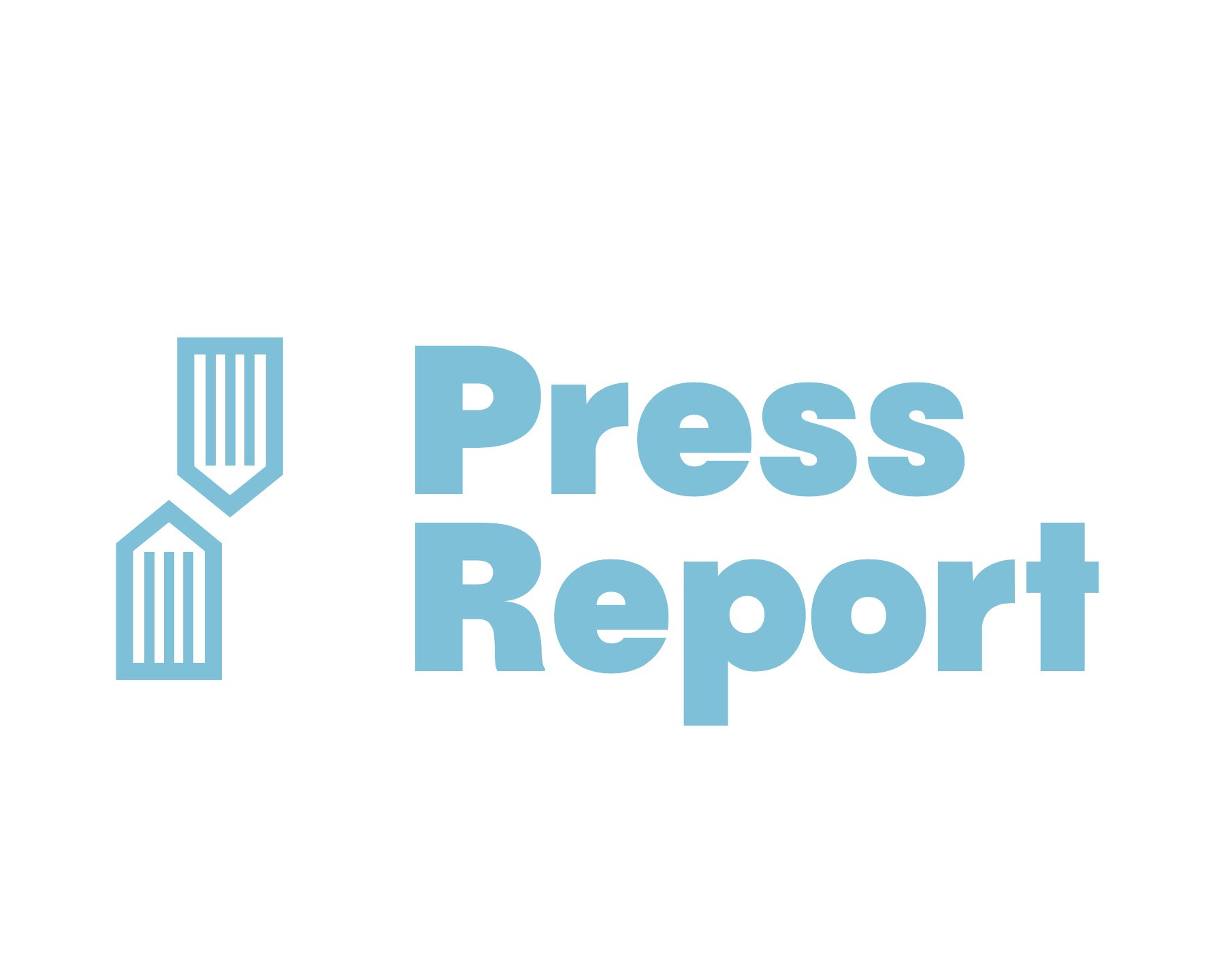AI in Legal
Understanding AI Legislation: A Comprehensive Guide

We live in a time when artificial intelligence (AI) is increasingly prevalent, reshaping many aspects of our everyday life. With the rapid advancement in AI technology, establishing a legal framework to oversee its use while fostering accountability and ethical practices is crucial. This comprehensive guide offers a thorough examination of AI legislation, exploring its impact on the legal profession, ethical challenges, and methods for assessing risks and securing adherence.
Key Takeaways:
- AI legislation plays a crucial role in governing the use of artificial intelligence.
- The legal framework for AI ensures responsible and ethical practices.
- The impact of AI on the legal profession is significant, necessitating adaptation in legal education.
- Ethical considerations, such as human rights and social equity, must be addressed in AI implementation.
- Effective risk assessment and compliance are essential for successful AI implementation.
The Urgency for AI Legislation
The transformative forces of AI have revolutionized industries and societies, presenting new opportunities and challenges. However, these rapid advancements have also created regulatory quicksands and a significant knowledge gap among key stakeholders. The urgency for AI legislation arises from the need to bridge this gap and provide a comprehensive legal framework that addresses the transformative forces of AI while ensuring its responsible and ethical use.
AI technology has the potential to disrupt various sectors, including healthcare, finance, and transportation. As AI continues to evolve and push the boundaries of innovation, regulations struggle to keep up, leaving key stakeholders vulnerable to potential risks and uncertainties. Without clear guidelines and governance, the transformative forces of AI may be harnessed in ways that endanger privacy, security, and social equity.
In this evolving landscape, it is crucial to equip stakeholders with the necessary knowledge and tools to navigate AI’s potential while safeguarding against its risks. Without proper legislation, we risk falling behind in understanding the full implications of AI and its impact on society.
This guide aims to close the knowledge gap by providing specific tools, recommendations, and insights for all stakeholders involved in the AI discourse. By understanding the urgency for AI legislation and the need to address the transformative forces of AI, we can collectively work towards establishing a legal framework that fosters responsible and ethical AI implementation.
| Challenges | Opportunities |
|---|---|
| Inadequate regulations to govern AI | Potential for innovation and economic growth |
| Privacy and security concerns | Enhanced efficiency and productivity |
| Potential bias and discrimination in AI systems | New job creation and skill development |
| Ethical dilemmas and questions of accountability | Improved decision-making and problem-solving |

The urgency for AI legislation cannot be understated. It is crucial for all stakeholders to come together, including governments, academia, industry leaders, and civil society, to collaboratively develop a legal framework that addresses the transformative forces of AI. By doing so, we can ensure the responsible and ethical use of AI technology, safeguarding against potential risks and creating a future where AI benefits all of humanity.
The Impact of AI on the Legal Profession
Artificial Intelligence (AI) is poised to revolutionize the practice of law, disrupting traditional norms and reshaping the legal landscape. As AI technology continues to advance at a rapid pace, it is crucial for legal professionals to understand and adapt to its implications. AI has the potential to enhance efficiency, streamline processes, and augment decision-making in legal practice.
AI in the practice of law is already being utilized in various areas, such as legal research, document review, contract analysis, and due diligence. These AI-powered tools can significantly reduce the time and effort required for these tasks, allowing lawyers to focus on more strategic and complex legal matters.
As legal education evolves in the age of AI, law schools and academic institutions must adapt their curricula to equip future lawyers with the necessary skills and knowledge. This includes developing courses that cover the technical aspects of AI, such as machine learning and natural language processing, as well as the ethical implications and legal considerations surrounding AI use in legal practice.
| Benefits of AI in the Legal Profession | Challenges and Considerations |
|---|---|
|
|
While AI holds great promise for the legal profession, it also presents challenges and considerations. Data privacy and security remain key concerns, as AI systems require access to vast amounts of data to learn and make informed decisions. Ethical considerations arise when AI algorithms make decisions that impact individuals or groups, raising questions about fairness, transparency, and accountability. Legal professionals must also navigate the potential legal liabilities associated with AI errors and determine the appropriate allocation of responsibility between humans and machines.
In conclusion, the impact of AI on the legal profession is undeniable. It offers significant benefits in terms of efficiency, accuracy, and automation. However, it also brings forth complex challenges that require careful consideration and proactive measures. As the legal profession embraces AI, it is essential to strike a balance between innovation and ethical responsibility, ensuring that AI is used responsibly and in alignment with legal and ethical standards.

AI Governance and Policy Recommendations
Developing a comprehensive framework for AI governance is essential to ensure responsible and ethical use of artificial intelligence technologies. Effective AI regulations and policies are crucial in protecting the rights and well-being of individuals and promoting trust in AI systems. In this section, we explore the importance of AI governance and present policy recommendations for policymakers.
The Need for AI Governance
AI governance refers to the establishment of rules, regulations, and policies that govern the development, deployment, and use of AI systems. It aims to address the ethical, legal, political, and socio-economic implications of AI, ensuring that it is used in a manner that aligns with societal values and norms.
Without proper governance, AI has the potential to be misused, leading to unintended consequences and harm. It is therefore essential to develop a legal framework that effectively addresses the challenges posed by AI, while also encouraging innovation and economic growth.
Policy Recommendations
To ensure responsible and effective AI governance, policymakers should consider the following recommendations:
- Transparency and Accountability: AI systems should be transparent, explainable, and accountable. Policymakers should encourage transparency in AI algorithms and decision-making processes, enabling individuals to understand how AI systems work and how they may impact their lives.
- Ethical Guidelines: Policymakers should develop ethical guidelines that outline the principles and values AI systems should adhere to. These guidelines should address issues such as bias, fairness, privacy, and safety, ensuring that AI is developed and used in a manner that respects and protects fundamental rights.
- Risk Assessment and Mitigation: Policymakers should establish mechanisms for assessing and mitigating the risks associated with AI implementation. This includes evaluating potential risks to individuals, society, and the economy, and implementing measures to minimize these risks.
- International Collaboration: Policymakers should collaborate with international partners to develop common standards and regulations for AI. International collaboration can help ensure consistency in AI governance and facilitate the exchange of best practices.
By adopting these policy recommendations, policymakers can lay the foundation for responsible and effective AI governance, fostering innovation and trust in AI technologies.
Ethical Considerations of AI
The rapid advancement of artificial intelligence (AI) presents society with a range of ethical implications that must be carefully considered. As we harness the potential of AI, it is crucial to ensure that it is developed, deployed, and used responsibly. This section explores the ethical dimensions of AI, including its impact on human rights, privacy, and social equity.
AI systems have the potential to significantly affect individual rights and freedoms. It is imperative that we address the potential biases and discrimination that can arise from AI algorithms and ensure that they do not infringe upon fundamental human rights. Transparency and explainability of AI systems are critical to building trust and ensuring accountability.
Responsible AI development also requires a focus on social equity. It is essential to consider the potential impact of AI on marginalized communities and ensure that AI systems do not perpetuate or exacerbate existing inequalities. We must strive for fairness and inclusivity in AI design and implementation.
As we navigate the ethical considerations of AI, it is important to recognize the need for ongoing dialogue and collaboration between various stakeholders. We must engage in interdisciplinary discussions that involve ethicists, policymakers, technologists, and civil society to establish guidelines and frameworks that promote the responsible and ethical use of AI.
Quotes:
“AI technology has tremendous potential, but we must remember that with power comes responsibility. Ethical considerations must be at the forefront of AI development, ensuring that it aligns with our values and respects human rights.” – AI Ethics Expert
“The ethical implications of AI go beyond the technical realm. We need to actively engage in conversations and actions that foster the responsible use of AI for the betterment of society.” – AI Policy Advocate
Table: Key Ethical Considerations of AI
| Ethical Consideration | Description |
|---|---|
| Human Rights | The potential impact of AI on fundamental human rights, such as privacy, freedom of expression, and non-discrimination. |
| Transparency and Explainability | The need for AI systems to be transparent and explainable to ensure accountability and build trust. |
| Social Equity | The potential for AI to perpetuate or exacerbate existing social inequalities and the importance of ensuring fairness and inclusivity in AI design and implementation. |
By addressing these ethical considerations and taking a proactive approach to the responsible development and use of AI, we can unlock its full potential while safeguarding the well-being and rights of individuals and communities.

Risk Assessment and Compliance for AI
Implementing AI technology can bring immense benefits to businesses and organizations, but it also comes with inherent risks that need to be carefully assessed and managed. A robust risk assessment process is crucial to identify potential risks and develop effective risk mitigation strategies. Additionally, ensuring compliance with relevant laws and regulations is essential to mitigate legal liability and reputational risks. In this section, we will explore the key considerations for risk assessment and compliance when operationalizing AI.
AI Risk Assessment
When implementing AI, it is important to conduct a comprehensive risk assessment to identify potential risks associated with the technology. This involves analyzing both technical and non-technical aspects of AI deployment. Technical risks may include issues such as data quality, algorithmic biases, and system vulnerabilities. Non-technical risks can involve ethical concerns, privacy implications, and the impact on human rights.
A risk assessment matrix can be a valuable tool for evaluating and prioritizing risks based on their likelihood and potential impact. This matrix allows organizations to allocate resources effectively and prioritize risk mitigation efforts. By identifying and understanding the risks, businesses can develop appropriate strategies to minimize their impact and ensure the responsible and ethical use of AI.
AI Compliance
Compliance with laws and regulations is crucial when implementing AI technology. Organizations must ensure that their AI systems adhere to legal requirements concerning privacy, data protection, fairness, and transparency. This includes compliance with regulations such as the General Data Protection Regulation (GDPR) and sector-specific laws.
Establishing effective compliance processes involves ongoing monitoring and auditing of AI systems to ensure they operate within the legal boundaries. It is important to have clear documentation of AI processes, including data collection, model training, and decision-making algorithms. This documentation helps demonstrate compliance and enables organizations to address any legal and regulatory challenges that may arise.
By conducting thorough risk assessments and ensuring compliance, businesses can mitigate potential risks associated with AI implementation. This not only protects organizations from legal and reputational harm but also helps foster trust and transparency in the use of AI technology.
| Risks | Impact | Likelihood |
|---|---|---|
| Data quality issues | High | Medium |
| Algorithmic biases | High | Medium |
| Privacy implications | Medium | High |
| Ethical concerns | Medium | High |
| System vulnerabilities | High | Low |

In this example, we assess the risks associated with AI implementation based on their potential impact and likelihood. By prioritizing the risks with the highest impact and likelihood, organizations can allocate resources effectively and develop targeted risk mitigation strategies.
The EU Artificial Intelligence Act: Implications and Impact
The EU Artificial Intelligence Act, introduced to regulate and govern the use of AI, has far-reaching implications for both businesses and individuals. It aims to establish a comprehensive regulatory framework for AI, ensuring the responsible and ethical development and deployment of AI systems. This section explores the key provisions of the AI Act and its potential impact on the global regulatory landscape in the field of AI.
Standardized Documentation Requirements
One of the significant aspects of the AI Act is the introduction of standardized documentation requirements for AI systems. This includes clear and transparent disclosure of the AI capabilities, limitations, and potential risks associated with its use. By providing standardized documentation, the EU aims to enhance transparency and foster trust between users and AI systems.
Generative AI Liability
The EU Artificial Intelligence Act also addresses the issue of generative AI liability. It establishes that the person or entity that places the generative AI system on the market or puts it into service will be deemed the “producer” and will assume liability for any damage caused by the system. This provision aims to ensure accountability and provide a legal framework for addressing any harm caused by AI systems.
Testing and Human Evaluations
The AI Act also emphasizes the importance of testing and human evaluations for high-risk AI systems. It requires that these systems undergo rigorous testing and assessment to ensure their safety and reliability. The inclusion of human evaluations aims to assess AI system performance in real-world scenarios and consider the ethical implications of their use, further enhancing the accountability and responsibility of AI developers and operators.
| Key Provisions of the EU Artificial Intelligence Act | Implications |
|---|---|
| Standardized Documentation Requirements | Enhances transparency and fosters trust between users and AI systems |
| Generative AI Liability | Establishes accountability and provides a legal framework for addressing harm caused by AI systems |
| Testing and Human Evaluations | Ensures safety, reliability, and ethical considerations of high-risk AI systems |
The EU Artificial Intelligence Act represents a significant step towards regulating AI and ensuring its responsible and ethical use. By introducing standardized documentation requirements, addressing generative AI liability, and emphasizing testing and human evaluations, the EU aims to establish a robust regulatory framework that fosters trust, accountability, and safety in the development and deployment of AI systems.
Compliance and Documentation Requirements
In the rapidly evolving landscape of AI legislation, compliance and documentation requirements play a crucial role in ensuring the responsible and ethical use of AI systems. Organizations developing and deploying AI technologies must adhere to standardized documentation practices, promote transparency, and establish robust governance frameworks. In this section, we explore the key compliance and documentation requirements introduced by the AI Act and their implications for AI stakeholders.
The AI Act emphasizes the need for comprehensive documentation that provides clear and accessible information about AI systems to users. This includes detailed explanations of the AI algorithms, data sources, and potential limitations. By fostering transparency, organizations can build trust and enable users to make informed decisions about the use of AI technologies. Additionally, the AI Act calls for the evaluation and disclosure of generative AI use cases, ensuring that the potential risks and implications of these systems are thoroughly assessed and communicated.
To meet these requirements, organizations must implement effective documentation practices that bridge the gap between technical intricacies and non-technical stakeholders. This may involve the development of user-friendly interfaces, summary reports, and visual representations that simplify complex AI concepts. By making documentation accessible and understandable, organizations can foster transparency, accountability, and user empowerment.
| Compliance and Documentation Requirements | Implications |
|---|---|
| Standardized Documentation | Promotes transparency and enables informed decision-making |
| Evaluation of Generative AI Use Cases | Assesses and communicates risks associated with AI systems |
| Accessible and Understandable Documentation | Fosters transparency, accountability, and user empowerment |
| Compliance with Disclosure Requirements | Enhances trust and mitigates potential risks |
In conclusion, compliance and documentation requirements are essential elements of AI governance. The AI Act introduces new obligations for organizations to promote transparency and accountability, ensuring that AI systems are developed and deployed responsibly. By prioritizing standardized documentation, evaluation of generative AI use cases, and accessibility, organizations can navigate the complex landscape of AI legislation and contribute to the responsible and ethical use of AI technologies.

Challenges and Opportunities for AI Engineers
As AI legislation continues to evolve, it presents both challenges and opportunities for AI engineers. These professionals play a crucial role in developing and implementing AI systems, and they must navigate the regulatory requirements that come with it. Understanding these requirements is essential for responsible AI governance and ensuring the ethical use of AI technology.
One of the key challenges for AI engineers is staying up to date with the ever-changing regulatory landscape. As new laws and regulations are introduced, AI engineers must adapt their practices to comply with the latest standards. This requires continuous learning and keeping abreast of developments in AI legislation to ensure that their AI systems meet the necessary legal requirements.
However, with these challenges come opportunities. By embracing the regulatory requirements for AI, engineers can contribute to the development of responsible AI governance frameworks. They can collaborate with policymakers and stakeholders to shape AI legislation that promotes transparency, accountability, and fairness. AI engineers have the unique opportunity to be at the forefront of ethical AI implementation and drive innovation in the field.
Building Responsible AI Systems
AI engineers also have the responsibility of building AI systems that adhere to the principles of responsible AI. This includes designing systems that are transparent, explainable, and accountable. They must ensure that AI models are tested thoroughly, undergo human evaluations, and follow structured workflows for model updates.
Conformity assessments are also essential to ensure that AI systems meet the necessary standards and requirements. AI engineers can play a pivotal role in establishing robust quality management systems that guarantee the reliability and safety of AI systems. By doing so, they contribute to the overall responsible and ethical use of AI technology.
In conclusion, while AI legislation presents challenges for AI engineers, it also provides opportunities for them to shape the future of AI governance. By understanding and complying with regulatory requirements, AI engineers can build responsible AI systems that adhere to ethical principles. Their expertise and innovation are crucial in driving the development and implementation of AI technology in a responsible and accountable manner.
| Challenges | Opportunities |
|---|---|
| Staying up to date with evolving AI legislation | Contributing to the development of responsible AI governance frameworks |
| Adapting practices to comply with regulatory requirements | Being at the forefront of ethical AI implementation |
| Driving innovation in the field of AI |
Conclusion
In conclusion, our comprehensive guide has provided an in-depth understanding of AI legislation and its implications for various stakeholders. By navigating the complexities of AI legislation, we can harness the transformative power of artificial intelligence while ensuring its responsible and ethical use.
Throughout this guide, we explored the urgent need for AI legislation, the impact of AI on the legal profession, and the ethical considerations surrounding AI implementation. We also delved into risk assessment and compliance for AI, providing a framework for organizations to identify and mitigate potential risks.
Furthermore, we discussed the EU Artificial Intelligence Act and its potential influence on global AI regulation. We highlighted the compliance and documentation requirements introduced by the act, emphasizing the importance of standardized documentation and evaluation processes.
In summary, AI legislation is an ever-evolving field that requires continuous attention and understanding. As AI continues to advance, it is crucial for all stakeholders to stay informed, adapt to changing regulations, and prioritize responsible and ethical governance. We hope that this guide has provided you with the necessary tools to navigate the complex landscape of AI legislation and make informed decisions for the future.
FAQ
What is AI legislation?
AI legislation refers to the legal framework and regulations governing the use and development of artificial intelligence technologies. It aims to address the ethical, legal, social, and economic implications of AI, ensuring its responsible and ethical use.
Why is there a need for AI legislation?
The transformative forces of AI have outpaced the understanding of its capabilities and effects by key stakeholders. AI legislation is necessary to bridge this knowledge gap and provide a legal framework that governs the responsible use of AI, protecting the rights and interests of individuals and society as a whole.
How will AI impact the legal profession?
AI will have a significant impact on the legal profession, both in terms of how lawyers practice law and how the field is regulated. AI can automate repetitive tasks, enhance legal research, and improve efficiency. It also raises the need for adapting legal education to incorporate AI knowledge into curricula.
What is AI governance?
AI governance refers to the policies, regulations, and practices that govern the development, deployment, and use of AI technologies. It ensures that AI systems adhere to ethical and legal standards, addressing potential risks and challenges associated with AI implementation.
What are the ethical considerations of AI?
AI raises ethical questions regarding human rights, privacy, and social equity. It is crucial to consider the potential impact of AI on individuals and society, ensuring AI systems are transparent, explainable, and accountable. Ethical considerations aim to guide the responsible and ethical use of AI.
How can organizations assess and manage risks associated with AI implementation?
Organizations can use a risk assessment matrix to identify and mitigate potential risks associated with AI implementation. It involves evaluating risks related to data privacy, security, legal compliance, and reputational concerns. By adhering to AI compliance and ensuring adherence to legal and regulatory requirements, organizations can manage risks effectively.
What is the EU Artificial Intelligence Act?
The EU Artificial Intelligence Act is a legislation introduced by the European Union to regulate the use and development of AI technologies. It outlines compliance and documentation requirements, liability aspects, testing procedures, and conformity assessments for high-risk AI use cases.
What are the compliance and documentation requirements under the AI Act?
The AI Act introduces new requirements for organizations developing and deploying AI systems. It emphasizes standardized documentation, clear disclosure of AI to users, and evaluation processes for generative AI use cases. Comprehensive documentation accessibility is important to bridge the gap between technical intricacies and non-technical stakeholders.
What are the challenges and opportunities for AI engineers?
AI engineers play a crucial role in responsible AI governance. They need to have a basic understanding of regulatory requirements and ensure compliance. They also have opportunities to innovate and drive efficiency in AI systems through testing, human evaluations, structured workflows for model updates, and establishment of quality management systems.
In an era where technology intersects with every aspect of life, Maxwell bridges the gap between artificial intelligence and journalism. As a writer and AI expert, he explores the implications of emerging technologies on society, economy, and culture. Maxwell’s expertise allows Press Report to offer forward-thinking insights into the future of AI, making complex topics accessible and engaging for our audience.
AI in Legal
Streamlining Case Analysis: The Power of AI in Legal Strategy

Over recent years, the legal field has experienced notable shifts thanks to the integration of Artificial Intelligence (AI). There is an ongoing metamorphosis in case analysis, where AI tools are optimizing processes for improved accuracy, efficiency, and decision-making. With its ability to process vast amounts of data, AI is revolutionizing our methodologies in legal strategy.
Key Takeaways
- AI technologies are revolutionizing case analysis in the legal field.
- AI streamlines the process, leading to increased efficiency and accuracy.
- The power of AI enables informed decision-making in legal strategy.
- AI’s ability to process vast amounts of information is transforming the legal profession.
- AI integration in legal strategy is shaping a more efficient and effective future for legal practitioners.
The Impact of AI on Legal Research
The integration of artificial intelligence (AI) technologies in the legal field has revolutionized the way we conduct case analysis and legal research. With the power of AI, legal professionals can streamline their strategies and make more informed decisions. AI-powered legal research platforms have significantly enhanced the efficiency and effectiveness of case analysis, allowing for faster access to relevant information and valuable insights.
AI algorithms enable these platforms to quickly analyze vast databases of legal precedents, categorize relevant cases, and extract key insights. This means that lawyers no longer have to spend hours manually sifting through piles of documents, saving valuable time and effort. With AI, legal professionals can easily identify precedents, evaluate the strength of their arguments, and predict potential outcomes with a higher degree of accuracy.
Furthermore, AI excels in understanding and interpreting complex legal language. Natural Language Processing (NLP) algorithms enable AI systems to analyze legal documents, identify key concepts, and extract relevant information accurately. This means that lawyers can now rely on AI-powered tools to automatically highlight relevant passages, identify legal principles, and provide summaries of case law with a high degree of precision.
| Benefits of AI in Legal Research | AI-Powered Features |
|---|---|
| 1. Increased efficiency | – Quick analysis of vast databases – Easy access to relevant cases |
| 2. Enhanced accuracy | – Precise identification of key insights – Accurate understanding of complex legal language |
| 3. Informed decision-making | – Comprehensive analysis of relevant cases – Prediction of potential outcomes |
AI-powered legal research platforms have transformed the traditional methods of case analysis. These platforms utilize machine learning algorithms to quickly analyze and categorize vast databases of legal precedents, allowing legal professionals to easily access relevant cases and extract valuable insights.
Streamlining Legal Strategy with AI
By streamlining legal strategy with AI, we can improve the overall efficiency and effectiveness of our work. AI-powered tools allow us to spend less time on manual research and more time on crafting strong arguments and developing case strategies. The integration of AI in legal research is not only revolutionizing the profession but is also shaping a more efficient and effective future for legal practitioners.
With AI’s ability to analyze complex legal language, sift through large amounts of data, and provide valuable insights, we can confidently navigate through the complexities of the legal landscape. By leveraging AI technology, we can make more informed decisions, provide better outcomes for our clients, and ultimately create a stronger and more reliable legal system.
- Increased efficiency in case analysis
- Enhanced accuracy in legal research
- Improved decision-making through AI analysis
With the continuous advancement of AI technology, the future of legal research holds immense potential. As AI algorithms continue to evolve, we can expect even greater efficiency, accuracy, and insights in our legal strategies. By embracing the power of AI, we can stay ahead of the curve and provide the best possible legal services for our clients.
Advanced Natural Language Processing
In the field of legal analysis, AI technology is driving significant advancements through the application of advanced natural language processing (NLP) algorithms. These algorithms enable AI systems to understand and interpret complex legal language, leading to more efficient and accurate case law analysis. With NLP, AI systems can analyze legal documents, identify key concepts, and extract relevant information with a high degree of precision.
By leveraging NLP, AI systems can automatically highlight relevant passages, identify legal principles, and provide concise summaries of case law. This saves lawyers valuable time and allows them to focus on the most critical aspects of their cases. With AI-powered NLP, legal professionals can easily navigate through extensive legal texts, gaining quick access to the information they need for their analysis.
AI-powered NLP algorithms enable lawyers to efficiently analyze legal documents, identify key concepts, and extract relevant information with a high degree of precision.
NLP algorithms also enable AI systems to recognize and interpret subtle nuances in legal language. This capability enhances the accuracy of case law analysis by ensuring that the AI system understands the context and meaning of the legal text. Lawyers can rely on AI-powered NLP to assist them in comprehensively analyzing case law and extracting relevant insights that may have otherwise been missed.
Furthermore, AI systems with advanced NLP capabilities can identify relationships and connections between different legal concepts. This allows lawyers to uncover patterns and trends in case law that may not be immediately apparent to human researchers. By revealing these insights, AI-powered systems can provide lawyers with a deeper understanding of legal precedents and the potential implications for their own cases.
The Power of Advanced NLP in Case Law Analysis
The integration of advanced natural language processing into AI systems has revolutionized case law analysis in the legal field. By automating the analysis of legal documents and extracting valuable information, AI-powered NLP algorithms save lawyers time, improve accuracy, and provide a comprehensive view of the legal landscape. With this powerful tool at their disposal, legal professionals can make more informed decisions, develop stronger case strategies, and ultimately better serve their clients.
| NLP Benefits in Case Law Analysis | Examples |
|---|---|
| Efficient document analysis | Automated highlighting of relevant passages |
| Accurate identification of legal principles | Extraction of key concepts and summarization |
| Enhanced understanding of complex legal language | Interpretation of subtle nuances in legal texts |
| Identification of patterns and trends | Uncovering relationships between legal concepts |
Enhancing Legal Research Efficiency
In the digital age, the power of AI algorithms is transforming the landscape of legal research, revolutionizing the way lawyers conduct their work. With the integration of AI-powered tools, legal professionals can now enhance their search efficiency and reduce the time spent on manual research.
AI algorithms have the remarkable ability to quickly analyze vast amounts of data, extracting relevant information and identifying patterns that may not be immediately apparent to human researchers. This allows lawyers to gain new insights and perspectives, providing a solid foundation for their legal arguments and strategies.
One of the key benefits of AI in legal research is its ability to streamline the search process. Lawyers can now search for specific legal concepts, keywords, or passages within cases, enabling them to quickly access the information they need. Gone are the days of manually sifting through stacks of documents, as AI-powered tools provide efficient and accurate search results.
Enhancing Efficiency with AI Algorithms
AI algorithms also play a crucial role in enhancing the efficiency of legal research. By automating time-consuming tasks, such as categorizing cases or identifying relevant passages, AI-powered tools free up valuable time for lawyers to focus on higher-level analysis and strategy development.
Additionally, these tools provide a comprehensive analysis of relevant cases, highlighting similarities, differences, and legal principles. This enables lawyers to make informed decisions, evaluate the strength of their arguments, and predict potential outcomes more accurately. Ultimately, integrating AI into the legal research process empowers legal professionals to deliver better results for their clients.
| AI Algorithms | Benefits |
|---|---|
| Efficient search capabilities | Saves time and effort |
| New insights and perspectives | Enhances legal arguments |
| Automated tasks | Frees up time for analysis |
| Informed decision-making | Increases accuracy in predictions |
In conclusion, AI algorithms have revolutionized legal research by enhancing search efficiency and streamlining the process. With the power of AI, lawyers can access information quickly and accurately, gain new insights, and make more informed decisions. As AI technology continues to advance, the future of legal research holds even greater possibilities for efficiency and effectiveness.
Improved Decision-Making and Case Strategy
When it comes to making informed decisions and developing strong case strategies, AI analysis is proving to be a game-changer for legal professionals. With AI-powered systems providing comprehensive analysis of relevant cases, lawyers can gain valuable insights into similar cases, judges’ decisions, and the legal reasoning behind those decisions.
This level of analysis enables lawyers to identify precedents, evaluate the strength of their arguments, and predict potential outcomes more accurately. By leveraging AI technology, legal professionals can make more informed decisions and develop effective strategies that are backed by data and insights.
AI analysis also allows for a deeper understanding of the factors that influence case outcomes. By identifying patterns, trends, and relationships among cases, AI algorithms can provide new insights and perspectives for legal arguments and strategies. This can lead to more persuasive arguments, better case outcomes, and ultimately, improved client satisfaction.
How AI is Enhancing Decision-Making and Case Strategies
By harnessing the power of AI, legal professionals can optimize their decision-making process and develop more effective case strategies. AI analysis enables lawyers to:
- Identify relevant legal precedents quickly and accurately
- Evaluate the strength of their arguments based on historical case outcomes
- Predict potential outcomes with greater precision
- Identify patterns, trends, and relationships among cases that may not be immediately apparent to human researchers
With the ability to analyze vast amounts of data and provide valuable insights, AI is revolutionizing the way legal professionals approach decision-making and case strategy. By integrating AI analysis into their workflow, lawyers can gain a competitive edge and deliver better outcomes for their clients.
| Benefits of AI Analysis | |
|---|---|
| 1. | Increased efficiency and accuracy in case analysis |
| 2. | Improved decision-making based on comprehensive analysis of relevant cases |
| 3. | Better understanding of case outcomes and the factors that influence them |
| 4. | Identification of patterns, trends, and relationships among cases |
As AI technology continues to evolve, the integration of AI analysis into the legal field will undoubtedly have a transformative impact on decision-making and case strategy. Legal professionals who embrace AI as a tool for analysis and insight will be well-positioned to deliver better outcomes for their clients in an increasingly complex legal landscape.
The Role of AI in Streamlining Legal Research
At the forefront of the technological revolution in the legal field, AI integration has significantly transformed the way legal research is conducted. By harnessing the power of artificial intelligence, legal professionals can streamline their research processes, enhance efficiency, and access valuable insights that were once time-consuming and labor-intensive to obtain.
One of the key advantages of AI in legal research is its ability to understand complex legal language and analyze vast amounts of data. With advanced natural language processing algorithms, AI systems can effectively interpret legal documents, identify key concepts, and extract pertinent information accurately. Lawyers can save valuable time by automatically highlighting relevant passages, identifying legal principles, and providing concise summaries of case law with a high degree of precision.
Furthermore, AI-powered legal research tools offer an efficient and comprehensive way to search for specific legal concepts, keywords, or passages within cases. Gone are the days of manual research that required hours of sifting through volumes of legal materials. AI algorithms can quickly analyze and categorize legal precedents, identifying patterns, trends, and relationships among cases that may not be immediately apparent to human researchers. This capability provides legal professionals with new insights and perspectives for developing stronger case strategies and delivering better outcomes for their clients.
With the continued advancement of AI technology, the future of the legal profession holds immense potential. Integrating AI into legal research allows for increased efficiency, accuracy, and informed decision-making. Legal professionals can make more confident and data-driven choices, ensuring that their clients receive the highest quality legal representation.
The Benefits of AI Integration in Legal Research
- Enhanced Efficiency: AI-powered platforms automate time-consuming research tasks, allowing legal professionals to focus on higher-value work.
- Access to Valuable Insights: AI algorithms can uncover hidden relationships and patterns in legal data, providing lawyers with valuable insights to strengthen their case strategies.
- Improved Accuracy: AI systems accurately analyze and interpret complex legal language, reducing the risk of human error in legal research.
- Faster Decision-Making: By quickly processing vast amounts of data, AI enables legal professionals to make informed decisions in a timely manner.
“The integration of AI in legal research has revolutionized the profession, offering streamlined processes, enhanced efficiency, and access to valuable insights that were once time-consuming and labor-intensive to obtain.”
| Traditional Legal Research | AI-Powered Legal Research | |
|---|---|---|
| Efficiency | Manual research requires significant time and effort to sift through legal materials. | AI algorithms quickly analyze and categorize vast databases of legal information, reducing research time and effort. |
| Accuracy | Human researchers may miss relevant cases and legal principles due to information overload. | AI systems accurately identify key concepts and provide precise summaries, minimizing the risk of overlooking critical information. |
| Insights | Traditional research methods may not uncover hidden patterns or relationships in legal data. | AI algorithms can identify trends, patterns, and relationships among cases, providing valuable insights for case strategies. |
| Decision-Making | Manual research often results in delays in decision-making due to time constraints. | AI-powered platforms allow for faster decision-making by processing data quickly and providing comprehensive analysis. |
AI-Based Legal Support Services
As the legal profession continues to evolve, the integration of AI-based legal support services is revolutionizing the way law firms conduct research and analyze cases. These cutting-edge services offer a range of tools and resources that enhance efficiency, accuracy, and overall effectiveness. From case analysis and document review to legal research databases and predictive analytics, AI is transforming the way lawyers work and providing solutions to longstanding research problems.
One of the key advantages of AI-based legal support services is their ability to automate time-consuming and labor-intensive tasks. Case analysis tools, for example, utilize AI algorithms to categorize cases, identify key passages, and provide comprehensive summaries. By automating these processes, lawyers can save valuable time and focus on more critical aspects of their work.
Another significant benefit is the access to vast legal research databases. AI-powered platforms offer quick and easy access to a wealth of legal information, allowing lawyers to find relevant case law, legal precedents, and statutes with ease. This not only streamlines the research process but also ensures that lawyers have access to the most up-to-date and relevant information, enhancing the accuracy and comprehensiveness of their work.
Moreover, AI-based legal support services provide valuable legal analytics tools that offer insights into judge behavior, case outcomes, and potential litigation strategies. By analyzing vast amounts of data and using advanced algorithms, these tools can help lawyers make informed decisions, assess risks, and develop effective strategies. With AI as a powerful ally, law firms can stay ahead in an increasingly competitive legal landscape and deliver better outcomes for their clients.
| Benefits of AI-Based Legal Support Services | Examples of AI-Based Legal Support Services |
|---|---|
|
|
Streamlining Legal Research with AI
In today’s fast-paced legal environment, the ability to efficiently conduct research and access relevant information is crucial. That’s where AI-powered tools come into play, revolutionizing the way legal professionals streamline their research processes. By leveraging the power of AI, lawyers can save time, improve accuracy, and gain valuable insights from vast legal databases.
AI-powered legal research tools utilize advanced algorithms to analyze legal documents, case law, and statutes. These tools can quickly sort through massive databases, extracting relevant cases and providing valuable insights in a fraction of the time. With AI’s ability to understand complex legal language, lawyers can easily identify key concepts, extract critical information, and make informed decisions.
Advantages of AI-powered research:
- Enhanced efficiency: AI algorithms streamline the research process, allowing lawyers to find relevant information quickly and effectively.
- Improved accuracy: AI-powered tools minimize the risk of human error by automatically analyzing vast amounts of data, ensuring comprehensive and reliable research results.
- Access to legal databases: AI-powered platforms provide lawyers with access to extensive legal databases, enabling them to stay up-to-date with the latest precedents and legal developments.
“AI-powered legal research tools are transforming the way lawyers conduct their research. These tools not only make the research process more efficient but also provide valuable insights that were once time-consuming to obtain.” – LegalTech Magazine
By integrating AI into the legal research process, lawyers can optimize their time, focus on core legal analysis, and gain a competitive edge. The future of legal research is bright with the possibilities brought by AI-powered tools, providing legal professionals with the resources they need to deliver effective and efficient solutions for their clients.
| Advantages | AI-powered Research |
|---|---|
| Enhanced efficiency | ✔️ |
| Improved accuracy | ✔️ |
| Access to legal databases | ✔️ |
| Time-saving | ✔️ |
AI in Document Review
When it comes to document review in the legal industry, AI-powered tools are making a significant impact. These tools utilize advanced algorithms and machine learning to automate the process of categorizing documents, identifying key topics and clauses, and providing valuable insights. By leveraging AI technology, legal professionals can save time, reduce errors, and improve the overall efficiency of the review process.
AI-powered document review tools are designed to scan, classify, and extract data from large quantities of legal documents, including contracts, agreements, and legal briefs. This automation significantly reduces the time and effort required for manual review, allowing lawyers to focus on more critical tasks. These tools can also identify inconsistencies, duplications, and potential risks, ensuring that nothing goes unnoticed during the review process.
With AI-powered document review, legal professionals can streamline their workflows, increase accuracy, and reduce the risk of costly errors.
Furthermore, AI-powered document review tools provide valuable insights and analysis that can enhance the overall quality of legal services. By automatically identifying key clauses, terms, and provisions, these tools help lawyers assess risks, identify legal issues, and make better-informed decisions. This level of efficiency and accuracy in document review can ultimately lead to better outcomes for clients and more effective legal strategies.
| Advantages of AI-powered Document Review | Challenges of Traditional Document Review |
|---|---|
|
|
In conclusion, AI-powered document review is revolutionizing the legal industry by streamlining workflows, reducing errors, and providing valuable insights. By leveraging machine learning and advanced algorithms, legal professionals can enhance their efficiency, improve accuracy, and deliver better outcomes for their clients. As AI technology continues to advance, the future of document review in the legal field looks promising, with increased automation and enhanced capabilities.
Enhancing Efficiency in Contract Review with AI
Contract review is a crucial task for legal professionals, requiring meticulous attention to detail and a deep understanding of complex legal language. However, with the advancements in AI technology, contract review can now be streamlined and made more efficient with the help of AI-powered platforms.
These AI-powered platforms utilize natural language processing and machine learning algorithms to analyze contracts swiftly and accurately. By automatically identifying key clauses, terms, and provisions, AI platforms allow lawyers to review contracts more quickly and accurately. This not only saves time but also reduces the risk of missing crucial details that could impact the outcome of a case.
Furthermore, AI-powered contract review platforms can assist lawyers in assessing risks associated with contracts. These platforms can flag potential legal issues, provide insights into the potential impact of certain clauses, and help lawyers make informed decisions when negotiating or drafting contracts. By leveraging AI technology, legal professionals can enhance their efficiency in contract review and ensure that contracts are thoroughly analyzed and reviewed for any potential risks.
| Benefits of AI in Contract Review | AI-Powered Platforms for Contract Review |
|---|---|
|
|
Overall, the integration of AI in contract review brings significant advantages to legal professionals. By leveraging AI-powered platforms, lawyers can enhance their efficiency, accuracy, and risk assessment capabilities in contract review. With the help of AI, contract review becomes a more streamlined and informed process, enabling legal professionals to provide better outcomes for their clients.
AI and Predictive Analytics in Law
In the ever-evolving field of law, the integration of artificial intelligence (AI) and predictive analytics has proven to be a game-changer. These technologies have revolutionized the way legal professionals approach litigation strategy, offering unique insights into future outcomes. By harnessing the power of AI, lawyers can now rely on data-driven predictions and make informed decisions to better serve their clients.
“AI-powered predictive analytics is transforming the legal industry by utilizing vast amounts of data to predict future events.”
One of the main advantages of AI and predictive analytics in law is the ability to gain a comprehensive understanding of litigation strategy. By analyzing historical data, AI algorithms can identify patterns, trends, and potential outcomes. This enables lawyers to formulate effective strategies, assess risks, and make informed decisions that are grounded in data-driven insights.
The use of predictive analytics also allows legal professionals to allocate resources more efficiently. By understanding the likelihood of certain outcomes, lawyers can focus their efforts on areas with the highest potential impact. This not only saves time and costs but also ensures that every action taken is strategic and purposeful.
As AI technology continues to advance, the integration of predictive analytics in law will become increasingly prevalent. By leveraging the power of AI, lawyers can enhance their ability to deliver favorable outcomes for their clients, stay ahead of the competition, and shape the future of the legal profession.

| Benefits | Explanation |
|---|---|
| Improved litigation strategy | AI and predictive analytics provide valuable insights for developing effective strategies and assessing risks. |
| Resource allocation | By understanding potential outcomes, lawyers can allocate resources more efficiently, saving time and costs. |
| Data-driven decision-making | Predictive analytics allows legal professionals to make decisions based on data-driven insights rather than intuition alone. |
| Enhanced client service | The use of AI and predictive analytics enables lawyers to provide more accurate advice and deliver favorable outcomes for clients. |
Leveraging AI-Powered Predictive Analytics
AI-powered tools are revolutionizing the way lawyers analyze potential outcomes and make informed decisions in litigation. By leveraging predictive analytics, legal professionals can better understand the cost of litigation, predict judge decisions, and assess risks associated with their cases. These AI-powered tools offer a range of benefits, including reduced time and cost of manual data analysis, improved accuracy, and the ability to craft persuasive arguments and strategies.
AI-powered predictive analytics tools analyze large volumes of data to provide valuable insights into potential outcomes. By using advanced algorithms and machine learning, these tools can predict judge decisions based on historical data, identify patterns and trends in case outcomes, and estimate the likelihood of success in different scenarios. This allows lawyers to develop informed litigation strategies, evaluate the strengths and weaknesses of their cases, and allocate resources effectively.
Furthermore, AI-powered tools can also help lawyers estimate the cost of litigation. By analyzing historical data and considering various factors such as case complexity, jurisdiction, and legal fees, these tools can provide accurate cost estimates, allowing lawyers to better manage their clients’ expectations and budget for the litigation process.
In summary, leveraging AI-powered predictive analytics tools in the legal industry enhances decision-making, reduces costs, and improves overall case strategy. By harnessing the power of AI, lawyers can gain valuable insights, predict potential outcomes, and make informed decisions that lead to better results for their clients.
Table: Comparison of AI-Powered Predictive Analytics Tools
| Tool | Features | Cost |
|---|---|---|
| Kira Systems | Automated contract analysis, risk identification, and due diligence | Subscription-based pricing |
| Luminance | Document analysis, contract review, and risk assessment | Custom pricing based on usage |
| LawGeex | Automated contract review, risk identification, and compliance checks | Subscription-based pricing |
Note: The table above provides a brief comparison of some popular AI-powered predictive analytics tools in the legal industry. The features and pricing may vary based on specific requirements and subscription plans. It is recommended to contact the respective vendors for more detailed information.
AI-Powered Tools for Legal Research and Analysis
In today’s digital age, the legal profession is benefitting greatly from the integration of artificial intelligence (AI) in legal research and analysis. AI-powered tools are revolutionizing the way lawyers access and analyze vast amounts of legal information, enhancing efficiency and accuracy in the research process. These innovative tools, such as LexisNexis, Westlaw, and Casetext, utilize powerful machine learning algorithms to quickly and accurately analyze complex legal databases, saving lawyers valuable time and resources.
One of the key advantages of AI-powered legal research tools is their ability to streamline the search process. With these tools, lawyers can easily find relevant case law, legal precedents, and statutes, significantly reducing the time and effort required for research. The AI algorithms used by these platforms are designed to analyze and categorize legal information, providing lawyers with quick access to the most relevant and important documents.
Moreover, AI-powered tools improve the accuracy of legal research. By leveraging machine learning algorithms, these tools are able to identify patterns and relationships among cases that may not be immediately apparent to human researchers. This enables lawyers to gain new insights and perspectives, leading to more effective arguments and strategies. Additionally, AI algorithms can highlight relevant passages and provide summaries of case law with a high degree of precision, saving lawyers valuable time in the analysis process.
Overall, the integration of AI-powered tools in legal research and analysis is enhancing efficiency and accuracy in the legal profession. These tools offer a more streamlined research process, quick access to relevant legal information, and valuable insights that can be leveraged to develop stronger case strategies and make more informed decisions. As the technology continues to evolve, AI is poised to play an even greater role in the future of legal practice.
AI-Driven Document Analysis in Law
AI-powered document analysis tools have become invaluable assets for lawyers, offering significant advancements in speed, accuracy, and efficiency. These tools, such as Kira Systems, Luminance, and RAVN, utilize machine learning algorithms to rapidly process and categorize legal documents, helping legal professionals save time and reduce errors in their analysis.
The speed at which AI-powered document analysis can review and extract information from large quantities of legal documents is truly remarkable. Tasks that would have taken hours or even days to complete manually can now be accomplished in a fraction of the time. This efficiency allows lawyers to focus their efforts on more valuable work, such as developing case strategies and providing expert counsel to their clients.
The accuracy of AI-driven document analysis is also unparalleled. These tools can identify and highlight key clauses, provisions, and risks within legal documents, ensuring that no important details are overlooked. With AI’s ability to process vast amounts of data, lawyers can confidently rely on these tools to deliver comprehensive and precise analyses, enhancing the quality of their work.

A major advantage of AI-powered document analysis is its ability to reduce errors. By automating the analysis process, AI tools minimize the risk of human oversight or misinterpretation. Additionally, these tools can flag inconsistencies or potential risks within legal documents, providing lawyers with valuable insights and helping them make informed decisions.
In conclusion, AI-driven document analysis has revolutionized the way legal professionals review and analyze legal documents. The speed, accuracy, and error-reducing capabilities of AI-powered tools like Kira Systems, Luminance, and RAVN have significantly improved efficiency and productivity in the legal field. As technology continues to advance, we can expect further enhancements in AI-driven document analysis, empowering lawyers to deliver even better outcomes for their clients.
AI Integration in Contract Review
AI-powered contract review platforms like Kira Systems, Luminance, and LawGeex are revolutionizing the way contracts are analyzed and reviewed. These platforms utilize advanced natural language processing and machine learning algorithms to efficiently identify key clauses, provisions, and potential risks within contracts. By automating the review process, AI integration significantly improves the efficiency and accuracy of contract analysis.
With AI-powered contract review, lawyers can save time and reduce errors by quickly identifying and flagging potential issues. These platforms enable efficient analysis of contracts by automatically extracting data, categorizing clauses, and highlighting inconsistencies. By streamlining the review process, lawyers can focus on more strategic and high-value tasks, such as negotiating contract terms and assessing legal risks.
The risk identification capabilities of AI-powered contract review tools are particularly valuable. These platforms can analyze contracts for potential legal pitfalls, including ambiguous language, missing clauses, and non-compliant provisions. By flagging these risks, AI integration enables lawyers to proactively address and mitigate potential legal liabilities, ultimately protecting their clients’ interests.
| Benefits of AI Integration in Contract Review | AI-Powered Contract Review Platforms |
|---|---|
|
|
As AI technology continues to advance, the integration of AI in contract review will become increasingly prevalent in the legal industry. These AI-powered platforms provide lawyers with the tools and capabilities to efficiently analyze, review, and mitigate risks in contracts, ultimately enhancing the quality of legal services provided to clients.
Conclusion:
In conclusion, the integration of AI in legal strategy and case analysis brings a multitude of benefits to the legal profession. By leveraging AI-powered tools in various areas such as legal research, document review, contract review, and predictive analytics, we can enhance the efficiency and accuracy of our work.
The use of AI streamlines the research process, allowing us to access relevant cases and extract valuable insights with ease. It enables us to understand and interpret complex legal language through advanced natural language processing algorithms, saving us time and effort. Additionally, AI algorithms can identify patterns and relationships among cases that might not be immediately apparent to human researchers, providing new perspectives for legal arguments and strategies.
With AI-powered predictive analytics, we can make more informed decisions and develop effective strategies by analyzing large amounts of data. This helps us assess risks, estimate the cost of litigation, and predict potential outcomes. Overall, the integration of AI technology into the legal industry is shaping a more efficient and effective future for legal practitioners.
As AI continues to evolve, we can expect further advancements in the field, offering even more benefits for legal strategy and case analysis. The future of AI in law holds great potential, and we look forward to leveraging these technological advancements to better serve our clients and deliver positive outcomes.
FAQ
How does AI revolutionize case analysis in the legal field?
AI technologies streamline case analysis by processing vast amounts of information, leading to increased efficiency, accuracy, and informed decision-making.
How do AI-powered legal research platforms transform traditional methods of case analysis?
These platforms utilize machine learning algorithms to analyze and categorize legal precedents, enabling easy access to relevant cases and valuable insights.
How does AI excel in understanding complex legal language?
Natural Language Processing (NLP) algorithms allow AI systems to analyze legal documents, identify key concepts, and provide accurate summaries of case law.
How do AI-powered legal research tools enhance efficiency?
Lawyers can search for specific concepts or keywords within cases, reducing the time spent on manual research. AI algorithms also identify patterns and relationships among cases, providing new insights for legal arguments.
How does AI in case law analysis benefit legal professionals?
AI systems provide comprehensive analysis of relevant cases, including details of similar cases and judges’ decisions. This enables lawyers to identify precedents, evaluate arguments, and predict outcomes more accurately.
What services do AI-based legal support services offer?
These services offer case analysis tools, document analysis tools, legal research databases, and legal analytics tools to assist lawyers in various tasks.
How do AI-powered legal research tools streamline the research process?
These tools utilize AI algorithms to quickly sort through legal information, providing access to relevant cases and valuable insights in less time.
How does AI revolutionize document review?
AI-powered tools automatically categorize documents, identify key topics and clauses, and provide insights, reducing time and effort required for review.
How does AI streamline contract review?
AI-powered platforms quickly identify key clauses and provisions, making the review process faster and more accurate, helping lawyers identify legal issues and assess risks.
How does AI-powered predictive analytics benefit the legal industry?
Predictive analytics helps lawyers develop strategies, assess risks, and gain insights into potential outcomes by analyzing litigation data and using advanced algorithms.
What are some AI-powered tools available for legal research and analysis?
LexisNexis, Westlaw, and Casetext are examples of AI-powered tools that analyze legal information quickly and accurately, improving research efficiency.
How do AI-driven document analysis tools enhance legal review processes?
Tools like Kira Systems, Luminance, and RAVN categorize documents, extract data, and identify key clauses and risks, speeding up analysis and increasing accuracy.
How does AI integration improve efficiency in contract review?
AI-powered platforms quickly analyze and identify key clauses and provisions in contracts, reducing time and improving accuracy in contract review.
How does AI-powered predictive analytics assist in decision-making?
AI tools provide insights into potential outcomes, predict judge decisions, and estimate the cost of litigation, allowing lawyers to make informed decisions and develop effective strategies.
What are the benefits of using AI-powered tools in legal research and analysis?
These tools offer enhanced efficiency, accuracy, and access to valuable insights that improve legal research and analysis.
How do AI-driven document analysis tools benefit legal professionals?
These tools speed up analysis, increase accuracy, and reduce errors, allowing lawyers to focus on more valuable work.
How does AI integration in contract review improve efficiency?
AI-powered platforms automate the review process, flag potential risks, and improve the quality of contract review, saving time and reducing errors.
What is the future of AI in the legal profession?
The integration of AI will continue to shape a more efficient and effective future for legal practitioners, enhancing legal strategy and decision-making.
In an era where technology intersects with every aspect of life, Maxwell bridges the gap between artificial intelligence and journalism. As a writer and AI expert, he explores the implications of emerging technologies on society, economy, and culture. Maxwell’s expertise allows Press Report to offer forward-thinking insights into the future of AI, making complex topics accessible and engaging for our audience.
AI in Legal
The AI Legal Assistant: Empowering Lawyers to Do More

We’re excited to announce the global debut of the AI legal assistant, CoCounsel, developed by Casetext. CoCounsel is designed to boost the capabilities of lawyers by allowing them to delegate major tasks to AI, giving them more time to focus on more critical matters. This innovative AI tool strives to improve efficiency and increase productivity for legal professionals in the field.
CoCounsel, built on OpenAI’s latest language model, offers a range of skills including legal research memo drafting, deposition preparation, and document review. By delegating these time-consuming tasks to CoCounsel, lawyers can save valuable time and enhance their ability to provide valuable legal services. With CoCounsel, lawyers can do more and achieve greater results.
Key Takeaways:
- CoCounsel is the world’s first AI legal assistant, empowering lawyers to focus on higher-value tasks.
- CoCounsel is built on OpenAI’s latest language model, offering skills such as legal research memo drafting, deposition preparation, and document review.
- By delegating tasks to CoCounsel, lawyers can save time and enhance their efficiency in providing legal services.
- CoCounsel improves productivity and enables lawyers to achieve greater results in their legal practice.
- With CoCounsel, lawyers can do more and take on more impactful work in the legal industry.
Introduction to CoCounsel: Revolutionizing Legal Practice
CoCounsel is the result of a collaboration between Casetext and OpenAI, bringing together cutting-edge legal expertise and innovative AI technology to revolutionize the legal industry. With the rise of AI in various sectors, it was only a matter of time before the legal field benefited from its potential. CoCounsel, the world’s first AI legal assistant, is at the forefront of this transformation, offering legal AI solutions that are reshaping the way law firms operate and empowering lawyers to enhance their practice.
CoCounsel is not just another AI tool; it is a game-changer for law firms. By leveraging AI technology, CoCounsel enables lawyers to streamline their workflows, optimize efficiency, and focus on more strategic and higher-value tasks. With its advanced legal research capabilities, memo drafting expertise, deposition preparation skills, and document review capabilities, CoCounsel augments lawyers’ capabilities and enables them to provide exceptional service to their clients.
AI adoption in the legal industry has seen significant growth, and CoCounsel is leading the charge. Law firms are embracing AI technology to gain a competitive edge and stay ahead in an increasingly digital landscape. By utilizing CoCounsel, law firms can harness the power of AI to improve accuracy, save time, and deliver exceptional results. With its comprehensive legal knowledge and capabilities, CoCounsel is reshaping the future of legal practice, providing law firms with a transformative tool for success.
As AI continues to evolve and transform various industries, its impact on the legal sector is undeniable. CoCounsel’s introduction marks a significant milestone in the integration of AI technology into legal practice. By empowering law firms with advanced AI tools like CoCounsel, the legal industry is poised for a technological revolution, one that will redefine the way lawyers work, collaborate, and serve their clients.
Key Features of CoCounsel
CoCounsel, the world’s first AI legal assistant developed by Casetext, offers a range of key features designed to revolutionize the legal industry. By leveraging cutting-edge legal technology and AI innovation, CoCounsel empowers lawyers to enhance their efficiency and productivity.
Automated Legal Tasks
One of the primary benefits of CoCounsel is its ability to handle routine and sophisticated legal tasks. From legal research memo drafting and deposition preparation to document review, CoCounsel can swiftly and accurately complete these time-consuming activities. By delegating these tasks to CoCounsel, lawyers can save valuable time and focus on higher-value work such as strategy development and building client relationships.
Reliable Data and Speedy Answers
CoCounsel leverages reliable data and transformer-based neural nets to provide accurate and speedy answers to legal questions. With linked citations, CoCounsel ensures the accuracy and reliability of its output. Lawyers can trust CoCounsel to provide comprehensive and well-supported answers, enhancing the quality of their legal work.
Increased Efficiency and Innovation
By embracing CoCounsel, lawyers can benefit from the latest advancements in legal technology. CoCounsel streamlines legal processes and enables lawyers to complete tasks more efficiently, ultimately saving time and effort. This innovative AI assistant empowers lawyers to stay at the forefront of legal practice, embracing the potential of AI and staying competitive in an ever-evolving industry.
| Key Features | Benefits |
|---|---|
| Automated legal tasks | Saves time and allows lawyers to focus on higher-value work |
| Reliable data and speedy answers | Provides accurate and well-supported legal responses |
| Increased efficiency and innovation | Enables lawyers to streamline legal processes and stay competitive |
CoCounsel’s key features make it a valuable tool for lawyers seeking to leverage technology to enhance their legal practice. By embracing CoCounsel, lawyers can improve their efficiency, accuracy, and overall effectiveness, ultimately providing better service to their clients.
Development and Testing of CoCounsel
Casetext’s development of CoCounsel involved rigorous testing and fine-tuning. The company established a trust and reliability program managed by a dedicated team of experienced attorneys and AI engineers. The team spent nearly 4,000 hours training and fine-tuning CoCounsel based on over 30,000 legal questions. Additionally, Casetext conducted an intensive beta program, inviting over 400 lawyers from various firms and organizations to use and provide feedback on CoCounsel. This feedback was crucial in the fine-tuning process and continues to shape the development of CoCounsel.
Throughout the development process, Casetext’s focus was on ensuring the reliability and accuracy of CoCounsel. The trust and reliability program involved subjecting CoCounsel to rigorous testing scenarios and challenging legal questions. The team of attorneys and AI engineers thoroughly evaluated CoCounsel’s responses to ensure that it consistently provided accurate and helpful information.
The beta program played a significant role in gathering real-world feedback from practicing lawyers. Participants were given access to CoCounsel and encouraged to use it in their legal research and workflow. They were also invited to provide feedback on any areas for improvement. This valuable feedback allowed Casetext to identify and address any issues or limitations, further enhancing the capabilities of CoCounsel.
| Development of CoCounsel | Testing of CoCounsel |
|---|---|
| The development of CoCounsel involved rigorous testing and fine-tuning based on over 30,000 legal questions. | The trust and reliability program subjected CoCounsel to extensive testing scenarios and challenging legal questions. |
| The dedicated team of experienced attorneys and AI engineers spent nearly 4,000 hours training and fine-tuning CoCounsel. | The team thoroughly evaluated CoCounsel’s responses to ensure accuracy and reliability. |
| The beta program allowed over 400 lawyers to use CoCounsel and provide valuable feedback for further improvement. | |
Data Privacy and Security Measures
At Casetext, we understand the importance of data privacy and security. We prioritize the confidentiality and protection of client information when it comes to our AI legal assistant, CoCounsel. As a company founded by lawyers, we recognize the ethical and legal obligations associated with handling sensitive data.
To ensure the privacy of client information, CoCounsel accesses OpenAI’s model through dedicated servers and communicates with an API that never stores any customer data. This means that client information is not used to train the AI model, providing an additional layer of confidentiality. Our zero storage policy ensures that sensitive data is not retained, minimizing the risk of unauthorized access.
We follow strict data requirements and have implemented robust data security measures to safeguard against external threats. These measures include encryption protocols, multi-factor authentication, and regular security audits. By adopting industry best practices, we are committed to maintaining a secure environment for our clients’ data. With CoCounsel, lawyers can confidently leverage AI technology without compromising data privacy and security.
Increasing Access to Justice
One of the most significant outcomes of CoCounsel is its potential to increase access to justice. By automating time-intensive tasks and freeing up lawyers’ time, CoCounsel allows them to serve more clients and work through backlogs. This is particularly impactful for legal aid lawyers and those representing underserved communities.
Legal aid lawyers often face resource constraints that limit their impact. With CoCounsel, these lawyers can leverage AI technology to streamline their workflow and enhance their efficiency. By delegating routine tasks to CoCounsel, legal aid lawyers can focus on providing high-quality representation to individuals who cannot afford a lawyer.
CoCounsel has the potential to level the playing field and provide equal access to justice for underserved communities. By removing time-consuming administrative and research tasks, CoCounsel empowers legal aid lawyers to serve more people in need across a broader range of legal matters. This technology has the power to transform the practice of law and ensure that everyone has access to quality representation.
Underserved communities often struggle to access legal services due to various barriers, including financial constraints and limited resources. CoCounsel addresses these challenges by automating tasks and freeing up time for lawyers to provide assistance to individuals in need. The efficient and accurate legal support provided by CoCounsel can make a significant difference in the lives of those who would otherwise struggle to navigate the complex legal system.
AI-Powered Solutions for Law Firms
The use of artificial intelligence (AI) in the legal industry has brought about significant transformations, empowering law firms to enhance their services and improve efficiency. AI-powered solutions like CoCounsel, developed by Casetext, have revolutionized the way lawyers practice, providing them with valuable tools to streamline their workflows and deliver higher-quality representation. By leveraging AI technology, law firms can gain a competitive advantage in the market and drive the overall transformation of the legal profession.
Transforming Legal Practice
AI-powered solutions have the potential to transform how legal professionals approach their work. By automating routine and time-consuming tasks such as legal research, document review, and drafting legal memos, AI allows lawyers to focus on more strategic and complex aspects of their practice. This not only improves efficiency but also enables law firms to provide faster and more accurate services to their clients.
The integration of AI technologies like CoCounsel into law firms’ workflows has the potential to significantly increase productivity and optimize resource allocation. By reducing the time spent on repetitive tasks, lawyers can devote more time and energy to critical thinking, strategy development, and building strong client relationships. The use of AI-powered solutions in law firms is not about replacing lawyers but rather about augmenting their capabilities and empowering them to deliver superior services.
Enhancing Access to Justice
AI-powered solutions have the potential to increase access to justice, particularly for underserved communities. By automating tasks and reducing the cost of legal services, law firms can reach a broader client base and provide high-quality representation to those who may not have otherwise been able to afford legal assistance. The use of AI can help bridge the justice gap and ensure equal access to legal resources and support.
Furthermore, AI-powered solutions like CoCounsel can assist legal aid lawyers in managing their caseloads more efficiently and effectively. By automating administrative tasks and providing accurate insights and recommendations, AI can free up valuable time for legal aid lawyers to focus on advocating for their clients and addressing their specific needs. This can result in faster resolution of legal matters and improved outcomes for those who rely on legal aid services.
| Improved Efficiency | Enhanced Accuracy | Cost Savings |
|---|---|---|
| Automation of routine tasks | AI-driven insights and recommendations | Reduction in billable hours |
| Streamlined workflows | Reduction of human error | Optimized resource allocation |
| Time savings for lawyers | Improved legal research capabilities | Increased access to affordable legal services |
“AI-powered solutions have revolutionized the legal industry, allowing law firms to optimize their workflows, deliver faster and more accurate services, and enhance access to justice.”
As AI technology continues to advance, law firms must embrace these innovations to stay competitive in a rapidly changing legal landscape. By adopting AI-powered solutions like CoCounsel, law firms can not only improve their efficiency and accuracy but also provide a higher level of service to their clients. The future of the legal industry lies in the seamless integration of human expertise with AI technology, bringing about transformative changes that benefit both lawyers and their clients.
GPT-4 Powering CoCounsel
At Casetext, we are proud to announce that CoCounsel, our revolutionary AI legal assistant, is powered by GPT-4, the latest and most advanced large language model developed by OpenAI. GPT-4’s impressive reasoning capabilities have been put to the test and validated through its performance on the Uniform Bar Exam (UBE), surpassing previous language models and even achieving an average score higher than real-life test takers.
The integration of GPT-4 into CoCounsel has unlocked a whole new level of legal reasoning, paving the way for significant changes in the legal industry. By leveraging the power of GPT-4, CoCounsel is able to provide lawyers with accurate and reliable answers to complex legal questions, making it a professional-grade AI solution for legal professionals.
With CoCounsel powered by GPT-4, lawyers can now automate critical and time-consuming tasks, allowing them to focus on more impactful aspects of their practice. This breakthrough technology not only improves efficiency but also provides a competitive advantage in the market. Early adopters of CoCounsel, including Fortune 50 companies and Am Law 50 firms, have already experienced the benefits of this game-changing technology.
| GPT-3 | GPT-4 | |
|---|---|---|
| Performance on UBE | Achieved average score | Surpassed average score |
| Legal Reasoning | Good | Advanced |
| Automation Capabilities | Basic | Advanced |
| Efficiency | Improved | Enhanced |
We believe that the combination of GPT-4 and CoCounsel has the potential to shape the future of the legal industry. As AI continues to evolve, we remain committed to driving innovation and adoption in the legal field, empowering lawyers and transforming the way legal professionals practice.
The Impact of GPT-4 on Legal Practice
Incorporating GPT-4 into CoCounsel has revolutionized the way lawyers practice and has had a significant impact on the legal industry. The advanced reasoning capabilities of GPT-4 have allowed CoCounsel to automate critical and time-consuming tasks, freeing up lawyers’ time to focus on more impactful aspects of their practice. This has resulted in improved efficiency and productivity, providing a competitive advantage for early adopters of CoCounsel.
With CoCounsel’s AI-powered features, such as legal research memo drafting, deposition preparation, and document review, law firms can streamline their operations and deliver higher-quality services to their clients. By leveraging the power of GPT-4, CoCounsel provides accurate and reliable answers with linked citations, ensuring the accuracy and reliability of its output.
Law firms that have already embraced CoCounsel, including Fortune 50 companies and Am Law 50 firms, have experienced the benefits of this game-changing technology. CoCounsel has enhanced their efficiency, enabling them to handle larger workloads and deliver results more quickly. This not only improves their ability to serve their clients but also gives them a competitive edge in the market, setting them apart from firms that have not yet adopted AI solutions.
The impact of GPT-4 on legal practice is far-reaching and transformative. As more law firms recognize the advantages of AI adoption, the use of advanced language models like GPT-4 will become increasingly prevalent. This shift in the legal industry will continue to drive efficiency, improve client outcomes, and reshape the way lawyers approach their work.
The Advantages of GPT-4 in the Legal Industry
| Advantages | Explanation |
|---|---|
| Improved Efficiency | GPT-4 automates time-consuming legal tasks, freeing up lawyers’ time for higher-value work. |
| Enhanced Accuracy | CoCounsel’s use of GPT-4 ensures reliable and accurate answers with linked citations. |
| Competitive Advantage | Early adopters of CoCounsel gain a competitive edge by leveraging AI technology. |
| Streamlined Operations | Law firms can streamline their processes and deliver higher-quality services to clients. |
CoCounsel and Legal Aid Work
CoCounsel, the AI legal assistant developed by Casetext, has a significant impact on the legal aid community, providing increased access to justice for underserved communities. Legal aid lawyers often face resource constraints that limit their ability to help those in need. CoCounsel addresses this challenge by automating time-consuming tasks, allowing legal aid lawyers to serve more clients and work through backlogs more efficiently.
In underserved communities, access to legal representation is crucial but often lacking. CoCounsel levels the playing field by providing high-quality legal assistance that would otherwise be inaccessible to those who cannot afford a lawyer. By harnessing the power of AI, CoCounsel empowers legal aid lawyers to provide equal representation and improve access to justice for all.
The impact of CoCounsel extends beyond its ability to automate tasks and increase efficiency for legal aid lawyers. It also enables them to handle a broader range of legal matters, including those that require sophisticated legal analysis. This expansion of capabilities allows legal aid lawyers to address a wider spectrum of legal challenges faced by underserved communities, ensuring that their legal needs are met.
Through CoCounsel, Casetext is committed to making a positive impact on the legal aid community and advancing access to justice. By providing legal aid lawyers with powerful AI technology, CoCounsel not only transforms their practice but also helps create a more equitable legal system for all.
Trust, Safety, and Data Security
Ensuring trust, safety, and data security are our top priorities at Casetext. We understand the importance of safeguarding sensitive information in the legal industry. CoCounsel, our AI legal assistant, has been developed with stringent measures to protect client data and maintain confidentiality.
Our team of expert attorneys and AI engineers have thoroughly vetted and tested CoCounsel to ensure its reliability and trustworthiness. The AI model used by CoCounsel does not utilize client data for training, providing an additional layer of security and peace of mind for law firms and their clients.
“At Casetext, we believe that trust is the foundation of any successful partnership. That’s why we’ve implemented robust data security measures to safeguard our users’ information. With CoCounsel, lawyers can confidently delegate tasks to AI, knowing that their data is protected and their clients’ confidentiality is maintained.”
In addition to our zero-storage policy, CoCounsel’s communication with the AI model is facilitated through dedicated servers and an API that never stores customer data. This ensures that client information remains secure and inaccessible to unauthorized parties. We have taken every step to prioritize the trust and safety of our users.
| Data Security Measures | Trust and Safety |
|---|---|
| Zero-storage policy | Thorough vetting and testing |
| Dedicated servers | No client data used for training |
| Secure API communication | Confidentiality maintained |

We understand that data privacy and security are paramount in the legal industry. With CoCounsel, you can confidently embrace AI technology, knowing that your trust, safety, and data security are our utmost concern.
Casetext’s Leadership in Legal AI
Casetext has been at the forefront of legal AI innovation since 2013. Our commitment to developing AI solutions that empower attorneys to provide higher-quality and more efficient representation has made us a leader in the field. Over the years, our AI-powered tools have been adopted by over 10,000 law firms of all sizes and practice areas, helping them stay ahead in an increasingly competitive legal landscape.
Our flagship AI legal assistant, CoCounsel, is a testament to our leadership and expertise in the legal AI space. CoCounsel combines the power of OpenAI’s GPT-4 language model with Casetext’s deep understanding of the legal industry. By leveraging advanced AI technology, CoCounsel automates time-consuming tasks, freeing up lawyers to focus on higher-value work.
Through our continuous innovation and commitment to AI adoption, we have been recognized globally for our contributions to the legal industry. We were honored to receive the World Economic Forum’s prestigious Technology Pioneer award for our AI-powered brief analysis tool. This recognition further solidifies our position as a trusted and respected leader in legal AI.
The Benefits of Casetext’s AI Solutions
- Improved Efficiency: Our AI-powered solutions, including CoCounsel, streamline legal workflows, enabling lawyers to work more efficiently and effectively.
- Enhanced Accuracy: With the power of AI, our tools provide accurate and reliable answers to complex legal questions, reducing the risk of errors.
- Competitive Advantage: By adopting our AI solutions, law firms gain a competitive edge by offering innovative and cutting-edge services to their clients.
At Casetext, we are committed to driving the adoption of AI in the legal industry and helping lawyers harness the transformative power of technology. As AI continues to evolve, we will remain at the forefront, driving innovation, and shaping the future of the legal profession.
Table: Casetext’s AI Solutions
| Product | Description |
|---|---|
| CoCounsel | An AI legal assistant that automates routine legal tasks, allowing lawyers to focus on higher-value work. |
| Brief Analysis Tool | AI-powered tool that analyzes and organizes legal briefs, providing valuable insights and saving time for lawyers. |
| Legal Research Platform | AI-driven platform that leverages machine learning to provide comprehensive and efficient legal research. |
The Future of AI in Law
In recent years, the rapid advancement of artificial intelligence (AI) has had a significant impact on various industries, and the legal field is no exception. As the capabilities of AI continue to evolve, the future of AI in law holds great potential for transforming the legal industry. AI has already demonstrated its ability to improve efficiency, accuracy, and affordability, offering numerous benefits to both lawyers and clients.
One of the key areas where AI is expected to have a transformative impact is in the automation of time-consuming tasks. By utilizing AI-powered solutions like CoCounsel, lawyers can delegate routine legal tasks, such as legal research and document review, to AI assistants. This allows lawyers to focus on higher-value work that requires human expertise and judgment. The automation of these tasks not only improves overall efficiency but also frees up valuable time for lawyers to provide more personalized and strategic legal advice to their clients.
Additionally, AI has the potential to increase access to justice, especially for underserved communities. With AI-powered tools like CoCounsel, legal aid lawyers can tackle more cases and serve a greater number of clients, addressing backlogs and reducing the justice gap. By automating repetitive tasks, AI allows legal professionals to provide high-quality representation to those who may not otherwise have access to legal services. This has the potential to level the playing field and ensure equal representation for all.
Table: AI’s Impact on the Legal Industry
| Impact | Description |
|---|---|
| Efficiency | AI-powered tools automate time-consuming tasks, improving overall efficiency in legal practice. |
| Accuracy | AI can provide accurate and reliable answers based on vast amounts of legal data, reducing the risk of human error. |
| Affordability | AI-powered solutions can reduce costs associated with legal services, making them more accessible and affordable to a broader range of individuals and organizations. |
| Access to Justice | AI can increase access to justice by automating tasks, allowing legal professionals to serve more clients and reduce backlogs. |
| Legal Research | AI-powered tools like CoCounsel can streamline legal research, saving lawyers valuable time and improving the accuracy and comprehensiveness of their work. |
The future of AI in law is promising, with the potential to revolutionize how legal professionals practice and how legal services are delivered. As AI technology continues to advance, it is crucial for lawyers to embrace these innovations and adapt their practices to leverage the benefits that AI can offer. By integrating AI solutions into their workflows, lawyers can enhance their efficiency, accuracy, and overall effectiveness, ultimately providing better service to their clients and driving the transformation of the legal industry.
Learn More About CoCounsel
For detailed information about CoCounsel and its capabilities, visit our website at casetext.com/cocounsel. At Casetext, we provide comprehensive insights into CoCounsel’s features, benefits, and how it can streamline legal practice. Our website also offers resources and valuable insights on AI in the legal industry to help you stay informed and make informed decisions about adopting AI solutions.
Why Choose CoCounsel?
CoCounsel is the world’s first AI legal assistant that empowers lawyers to delegate substantive work, enabling them to focus on higher-value tasks. With CoCounsel, you gain access to advanced AI technology developed in collaboration with OpenAI, combined with Casetext’s expertise in the legal field. This powerful combination ensures that CoCounsel provides accurate and reliable legal research memo drafting, deposition preparation, and document review. By leveraging CoCounsel, you can enhance your efficiency, improve productivity, and deliver high-quality legal services to your clients.
CoCounsel has been rigorously tested and fine-tuned through our extensive trust and reliability program, managed by a dedicated team of experienced attorneys and AI engineers. We have trained CoCounsel on over 30,000 legal questions to ensure its accuracy and reliability. Additionally, we have invited over 400 lawyers to participate in our beta program, providing valuable feedback that has helped shape the development of CoCounsel.
Experience the Future of Legal Practice with CoCounsel
With CoCounsel, you can increase access to justice by automating time-consuming tasks and freeing up your time to serve more clients. Whether you’re a solo practitioner, part of a large law firm, or a legal aid attorney, CoCounsel has the potential to transform your practice and improve the overall efficiency of the legal industry. Join the growing community of early adopters, including Fortune 50 companies and Am Law 50 firms, who have already experienced the benefits of CoCounsel.

Visit our website and discover how CoCounsel can revolutionize your legal practice today. Embrace the power of AI and unlock new possibilities for efficiency, accuracy, and client satisfaction with CoCounsel.
Conclusion
In conclusion, CoCounsel, the AI legal assistant developed by Casetext, is a groundbreaking advancement in AI technology for the legal industry. With its ability to automate time-consuming tasks and free up lawyers’ time, CoCounsel empowers legal professionals to focus on higher-value work, improving efficiency and productivity.
CoCounsel’s range of skills, including legal research memo drafting, deposition preparation, and document review, enhances the quality of legal services provided. By leveraging OpenAI’s powerful GPT-4 language model and Casetext’s expertise in the legal field, CoCounsel ensures accurate and reliable output, saving lawyers valuable time and effort.
Not only does CoCounsel benefit legal professionals, but it also has a significant impact on access to justice. By automating routine tasks, CoCounsel allows lawyers, especially those in the legal aid community, to serve more clients and work through backlogs. This technology levels the playing field and increases access to high-quality representation for underserved communities.
With CoCounsel at the forefront of legal AI innovation, Casetext continues to drive the transformation of the legal profession. As AI technology evolves, the future of CoCounsel and AI in law holds great potential to further enhance legal practice, making it more efficient, accurate, and affordable for lawyers and clients alike.
FAQ
What is CoCounsel?
CoCounsel is the world’s first AI legal assistant developed by Casetext. It is built on OpenAI’s latest language model and offers lawyers the ability to delegate substantive work to AI, allowing them to focus on higher-value tasks.
What skills does CoCounsel have?
CoCounsel has skills including legal research memo drafting, deposition preparation, and document review. It is designed to improve efficiency and productivity for lawyers in the legal industry.
How was CoCounsel developed and tested?
CoCounsel was developed through a collaboration between Casetext and OpenAI. It underwent rigorous testing and fine-tuning, including a trust and reliability program managed by a dedicated team of experienced attorneys and AI engineers. Feedback from over 400 lawyers during an intensive beta program was crucial in shaping CoCounsel’s development.
How does CoCounsel ensure data privacy and security?
CoCounsel accesses OpenAI’s model through dedicated servers and communicates with an API that never stores any customer data. Casetext has a zero storage policy and follows strict data requirements, ensuring the confidentiality and security of client information.
How can CoCounsel increase access to justice?
By automating time-intensive tasks, CoCounsel enables lawyers to serve more clients and work through backlogs. This is particularly impactful for legal aid lawyers and those representing underserved communities, leveling the playing field and providing high-quality representation to those who cannot afford a lawyer.
What is the future of AI in the legal industry?
The rapid evolution of AI has already significantly impacted the practice and business of law. AI-powered solutions like CoCounsel have the potential to improve efficiency, accuracy, and affordability, ultimately benefiting both lawyers and clients. The ongoing development and adoption of AI in the legal field will continue to shape the future of law practice.
Where can I learn more about CoCounsel?
To learn more about CoCounsel and its capabilities, visit casetext.com/cocounsel. The website provides detailed information about CoCounsel’s features, benefits, and how it can streamline legal practice. It also offers resources and insights on AI in the legal industry, helping lawyers stay informed and make informed decisions about adopting AI solutions.
In an era where technology intersects with every aspect of life, Maxwell bridges the gap between artificial intelligence and journalism. As a writer and AI expert, he explores the implications of emerging technologies on society, economy, and culture. Maxwell’s expertise allows Press Report to offer forward-thinking insights into the future of AI, making complex topics accessible and engaging for our audience.
AI in Legal
Predictive Justice: AI’s Role in Shaping Legal Outcomes

Artificial Intelligence (AI) is revolutionizing the legal industry, changing the way justice is delivered. With its ability to predict legal outcomes with remarkable accuracy, AI is reshaping the approach to decision-making within the legal domain. In this article, we will explore the impact of AI on legal judgments and its effects on the legal industry.
Key Takeaways:
- AI has the potential to predict legal outcomes with high accuracy.
- The integration of AI into the legal sector is revolutionizing traditional practices and enhancing productivity.
- Machine learning algorithms can make data-driven legal predictions, providing more informed legal advice.
- Ethical considerations, transparency, and accountability are essential in utilizing AI in the legal field.
- AI plays various roles in the legal industry, from automated legal services to partnering with lawyers.
Technology’s Overtaking of the Markets
The advancement of technology has permeated every aspect of society, including the justice system. Law firms are embracing different technologies, including AI, to improve their efficiency and effectiveness. AI-powered legal analysis is becoming increasingly prevalent, allowing lawyers to focus on high-value work for their clients. The integration of AI into the legal industry is reshaping traditional practices and enhancing productivity.
AI technology offers numerous benefits for the justice system. By automating repetitive tasks and providing powerful data analysis capabilities, AI enables lawyers to streamline their workflows and make more informed decisions. With AI-powered legal analysis, law firms can efficiently process large volumes of legal documents, extract relevant information, and uncover insights that may have been overlooked. This technology revolutionizes legal research and case analysis, saving time and reducing the risk of human error.
Furthermore, AI’s impact extends beyond document analysis. It can assist in predicting legal outcomes based on historical data, enabling lawyers to assess the likelihood of success in a case. AI-powered predictive analytics empower attorneys to strategize more effectively, ensuring the best possible outcome for their clients. The integration of AI into the legal industry signifies a shift towards data-driven decision-making, where lawyers can leverage technology to augment their expertise and deliver better results.
As technology continues to evolve, the role of AI in the justice system will only expand. AI-powered tools will become increasingly sophisticated, offering advanced features such as natural language processing, sentiment analysis, and real-time data updates. These advancements will further enhance the capabilities of legal professionals, enabling them to provide more accurate and efficient services to their clients. The future of the legal industry lies in harnessing the power of AI to drive innovation, improve access to justice, and revolutionize legal practices.
Technology’s Impact on Legal Research
“AI-powered legal analysis revolutionizes legal research and case analysis, saving time and reducing the risk of human error.”
“AI-powered legal analysis revolutionizes legal research and case analysis, saving time and reducing the risk of human error.”
The Competency Brewing Up
Machine learning is revolutionizing the field of law, bringing about a new level of competency in legal matters. By harnessing the power of data-driven predictions, machine learning algorithms are reshaping the way legal professionals approach their work. Through the analysis of vast amounts of data, these algorithms can make accurate assessments of case dynamics, enabling lawyers to provide more informed legal advice.
With machine learning in law, legal professionals can uncover valuable insights and patterns that may have otherwise gone unnoticed, enhancing their understanding of complex legal issues. This technology empowers lawyers to make data-driven decisions based on objective analysis, improving the overall quality of legal services.
By embracing technology in the justice system, legal professionals can benefit from the efficiency and accuracy that machine learning provides. The integration of machine learning algorithms into legal practices streamlines the decision-making process and allows lawyers to focus on higher-level tasks. This not only saves time but also increases productivity, enabling legal professionals to deliver a more comprehensive and effective service to their clients.
As machine learning continues to advance, the competency it brings to the legal sector will only grow stronger. Legal professionals who embrace this technology will be at an advantage, able to provide better legal advice and navigate complex cases more effectively. The future of law is undoubtedly intertwined with machine learning, and its impact on the legal landscape will continue to shape the way legal outcomes are achieved.
AI and Ethical Principles in the Legal Sector
As artificial intelligence (AI) continues to shape the legal sector, it is essential to consider the ethical principles that govern its use. Transparency in AI algorithms, accountability in AI decisions, and privacy and data security are key areas that require careful attention. By upholding these ethical principles, we can ensure that AI systems contribute positively to the integrity of the justice system.
Transparency in AI algorithms is crucial for building trust and understanding how decisions are made. It is important to have clear insights into how AI systems analyze data and generate predictions. This transparency allows legal professionals and the public to assess the reliability and fairness of AI-generated outcomes, promoting a more equitable justice system.
“AI algorithms should be designed to ensure fairness, eliminate bias, and provide equal treatment to all individuals,” says legal expert Jane Smith.
As AI becomes more prevalent in legal practices, it is our responsibility to ensure that it operates within ethical boundaries and upholds the principles of justice.”
The Role of Accountability in AI Decisions
Accountability is another critical aspect when it comes to AI in the legal sector. It is essential to hold AI systems and their developers accountable for the decisions they make. This means that AI technology should be thoroughly tested and assessed for accuracy, reliability, and adherence to legal standards. Legal professionals should have the ability to challenge and question AI-generated insights, ensuring that the final decision-making authority remains in human hands.
Protecting Privacy and Data Security
Privacy and data security are paramount when utilizing AI in the legal field. AI systems often require access to personal information and sensitive data to make accurate predictions and assessments. It is imperative that legal professionals and AI developers prioritize the protection of this data and implement robust security measures to safeguard against unauthorized access or misuse. By upholding privacy and data security standards, we can ensure that AI contributes to a more secure and trustworthy legal environment.
| Ethical Principles | Key Considerations |
|---|---|
| Transparency | Clear insights into AI algorithms and decision-making processes |
| Accountability | Holding AI systems and developers responsible for decisions |
| Privacy and Data Security | Protecting personal information and sensitive data |
The Roles of AI in the Legal Industry
Artificial intelligence (AI) is playing a significant role in transforming the legal industry. From automated legal services to the development of judge bots, AI is revolutionizing the way legal professionals work. These advancements are streamlining processes, improving efficiency, and providing valuable insights for lawyers and their clients.
One of the key roles of AI in the legal industry is in automated legal services. AI-powered systems can handle repetitive and time-consuming tasks, such as document review and contract analysis, with great precision and efficiency. By automating these tasks, lawyers can focus on more complex and high-value work, ultimately providing better services to their clients.
| Roles of AI in the Legal Industry | Description |
|---|---|
| Automated legal services | AI systems can handle repetitive tasks, allowing lawyers to focus on higher-value work. |
| Judge bots | AI-powered systems that can analyze evidence and make decisions, potentially improving judicial processes. |
| Artificial intelligence partners with lawyers | AI can provide valuable insights and support decision-making processes, enhancing the work of legal professionals. |
Another role of AI in the legal industry is the development of judge bots. These AI-powered systems have the potential to analyze evidence and make decisions, improving the efficiency and accuracy of judicial processes. By leveraging vast amounts of data and utilizing machine learning algorithms, judge bots can provide more objective and consistent outcomes.
Furthermore, AI can partner with lawyers, acting as a valuable assistant in the decision-making process. By analyzing data and providing insights, AI can support legal professionals in better understanding case dynamics, identifying patterns, and formulating effective strategies. This partnership between AI and lawyers enhances the overall quality of legal services and improves the outcomes for clients.
The Rise of Automated Legal Services
AI-powered systems can handle repetitive tasks, allowing lawyers to focus on higher-value work.
The rise of automated legal services is transforming the legal industry. AI-powered systems can handle repetitive tasks, such as contract analysis and document review, with great accuracy and efficiency. By automating these tasks, AI frees up lawyers’ time to focus on higher-value work, such as legal strategy, client counseling, and complex legal analysis.
Automated legal services improve efficiency and productivity within law firms. With AI handling routine tasks, legal professionals can dedicate their time to more complex and strategic work, resulting in faster turnaround times and better client service. This efficiency also translates into cost savings for clients, as AI automation reduces billable hours for routine tasks.
The Potential of Judge Bots
AI-powered systems that can analyze evidence and make decisions, potentially improving judicial processes.
Judge bots, AI-powered systems that can analyze evidence and make decisions, have the potential to revolutionize the judicial process. These systems leverage machine learning algorithms and large datasets to provide objective and consistent decision-making. By removing human bias and subjectivity, judge bots offer a more fair and reliable approach to evaluating evidence and reaching legal conclusions.
The use of judge bots can help streamline judicial processes by reducing the time and resources required for manual case analysis. These systems can quickly analyze vast amounts of data, identify patterns, and provide insights to support legal professionals and judges in making informed decisions. The integration of judge bots into the legal system has the potential to improve the efficiency, accuracy, and fairness of the judicial process.
The Future of Law with AI
As we look ahead to the future of law, one thing is certain: artificial intelligence (AI) will have a significant impact on the legal landscape. The advancements in legal tech and the integration of AI into the legal sector are transforming traditional practices and reshaping the way justice is served. With the power of AI, the legal industry is poised for a substantial transformation.
Advancements in legal tech have already begun to revolutionize the way lawyers work. AI-powered systems can handle repetitive tasks, freeing up valuable time for legal professionals to focus on higher-value work. This increased efficiency and productivity not only benefit lawyers but also lead to a more client-centered experience. With the assistance of AI, legal professionals can provide better and more informed legal advice, making the entire legal process more efficient and effective.
Furthermore, the use of AI in court proceedings holds immense promise. AI can analyze vast amounts of data, including case histories and legal precedents, to predict legal outcomes with a high degree of accuracy. This ability to make data-driven predictions allows lawyers to better understand case dynamics, develop effective strategies, and make more informed decisions. The integration of AI into the legal industry enhances access to justice, improves productivity, and creates a more equitable legal system.
The Impact of AI on Legal Research
One area where AI is making significant advancements is in legal research. AI-powered platforms can analyze and categorize vast amounts of legal texts, statutes, and case law to provide lawyers with comprehensive and up-to-date information. This enables legal professionals to conduct research more efficiently, saving time and ensuring that they have access to the most relevant and accurate legal information. The use of AI in legal research not only improves efficiency but also enhances the accuracy and quality of legal analysis.
| Advantages of AI in Legal Research | Challenges of AI in Legal Research |
|---|---|
|
|
The future of law is undeniably intertwined with artificial intelligence. The advancements in legal tech and the integration of AI into the legal sector will continue to evolve and redefine traditional legal practices. As AI technology continues to advance, legal professionals must navigate the challenges and embrace the opportunities that arise. By leveraging the power of AI, the legal industry can enhance access to justice, improve efficiency, and provide better legal services to clients.
Limitations of AI in the Legal Sector
While artificial intelligence (AI) holds immense potential for transforming the legal sector, it is important to recognize the limitations it currently faces. As we navigate the integration of AI into the legal field, we must address ethical concerns, privacy issues, and the need for human oversight to ensure the integrity of the justice system.
One of the key challenges is ensuring transparency and explainability in AI algorithms. It is crucial for legal professionals to understand how AI makes predictions and recommendations in order to effectively challenge and utilize the generated insights. Additionally, transparency builds trust by enabling stakeholders to assess the fairness and accuracy of AI-driven legal decisions.
Another limitation lies in privacy and data security. AI often requires access to personal information in order to make accurate predictions and recommendations. As we leverage AI in the legal sector, it is imperative to establish robust safeguards to protect sensitive data and ensure compliance with legal and ethical standards.
“The integration of AI into the legal sector brings immense possibilities, but it also raises concerns about privacy, explainability, and human oversight. As we navigate these limitations, it is crucial to strike a balance that harnesses the power of AI while preserving the integrity of the justice system.”
Furthermore, the need for human oversight remains paramount. While AI can assist in legal research, document review, and even decision prediction, human judgment and expertise are still necessary to ensure ethical and equitable outcomes. Legal professionals play a vital role in interpreting and applying AI-generated insights within the context of individual cases, considering legal precedents, and understanding the nuances of the law.
| Limitation | Explanation |
|---|---|
| Transparency and Explainability | Legal professionals must have a clear understanding of how AI algorithms make predictions and recommendations to effectively challenge and utilize the generated insights. |
| Privacy and Data Security | Robust safeguards need to be in place to protect sensitive data and ensure compliance with legal and ethical standards as AI requires access to personal information for accurate predictions. |
| Human Oversight | While AI can assist in various legal tasks, human judgment and expertise are crucial to ensure ethical and equitable outcomes. |
As we address these limitations, it is essential that legal professionals, policymakers, and AI developers work collaboratively to uphold ethical principles and ensure the responsible and effective use of AI within the legal sector.

Support from Industry Professionals
Industry professionals within the legal sector have shown strong support for the integration of AI technology. Recognizing the potential of AI to enhance efficiencies, improve access to justice, and provide valuable insights for legal decision-making, experts are embracing AI as a transformative tool in the legal industry.
As AI continues to evolve and reshape traditional legal practices, professionals understand that AI can complement human expertise rather than replace it. By collaborating with AI technology, legal professionals can leverage its capabilities to revolutionize the way legal services are delivered.
The support from industry professionals is crucial for the successful implementation of AI in the legal sector. It reinforces the value that AI brings to the table and encourages further exploration and integration of AI technologies in legal practices.
Experts Recognize AI as a Game-Changer
“AI has the potential to transform the legal industry and improve access to justice. It can automate repetitive tasks, provide valuable insights, and enhance the efficiency of legal processes. The collaboration between legal professionals and AI technology is essential for unlocking its full potential.” – Legal Expert
AI Technology Enhances Legal Services
The integration of AI technology in the legal sector holds immense promise for the future. It has the capability to streamline processes, improve efficiency, and deliver better outcomes for clients. By leveraging the power of AI, legal professionals can focus on more complex and strategic tasks, allowing them to provide high-quality, client-centered services.
A Bright Future for AI in Law
As AI technology continues to advance, its impact on the legal industry will only grow stronger. The collaboration between AI and legal professionals will shape the future of law, revolutionizing the way legal services are delivered and enhancing access to justice. With industry support and a commitment to ethical implementation, AI has the potential to transform the legal landscape for the better.
Applications of AI in the Justice System
Artificial intelligence (AI) has a wide range of applications within the justice system, revolutionizing the way legal processes are carried out. From predictive analytics to enhancing access to justice, AI is playing a significant role in shaping the future of law.
Predictive Analytics
One of the key applications of AI in the justice system is predictive analytics. By analyzing past cases and patterns, AI algorithms can make data-driven predictions on the likely outcomes of legal cases. This can assist lawyers in developing effective strategies and making more informed decisions. Predictive analytics helps save time and resources by providing insights into the strengths and weaknesses of a case, allowing for better preparation and more accurate expectations.
Access to Justice
AI is also advancing access to justice by providing legal information and resources to individuals who may not have the means to afford traditional legal services. Through online platforms and chatbots, AI can offer guidance on legal matters, helping individuals navigate the complex legal system. This technology empowers people to understand their rights and seek appropriate legal remedies, enhancing access to justice for all.
Case Management and Sentencing
AI aids in streamlining case management by automating administrative tasks and organizing vast amounts of data. This allows lawyers and legal professionals to efficiently handle large volumes of information, improving overall productivity. Additionally, AI can assist judges in determining appropriate sentences by analyzing various factors, such as the severity of the crime and the defendant’s background. By providing valuable insights, AI systems can support fair and consistent sentencing practices.
| Application | Description |
|---|---|
| Predictive Analytics | AI algorithms analyze past cases to predict likely outcomes, assisting lawyers in developing effective strategies and making informed decisions. |
| Access to Justice | AI provides legal information and resources to individuals who may not have access to traditional legal services, improving their ability to navigate the legal system. |
| Case Management | AI automates administrative tasks and organizes data, allowing for efficient case management and improved productivity. |
| Sentencing | AI systems analyze various factors to assist judges in determining appropriate sentences, promoting fair and consistent sentencing practices. |
Revolutionizing Jury Decision Prediction
One area where AI is revolutionizing the legal sector is in predicting jury decisions. AI algorithms and machine learning techniques can analyze vast amounts of data, including past jury decisions and case details, to predict how a jury might rule. This technology provides valuable insights for lawyers, allowing them to develop effective strategies and make more informed decisions. AI enhances, rather than replaces, human judgment, by removing bias and improving the efficiency of the litigation process.
AI jury decision prediction offers several advantages. By analyzing vast amounts of data, AI systems can identify patterns and trends that humans may overlook, enhancing the decision-making process. AI removes bias and provides fairer and more objective jury decisions. Additionally, AI saves time by quickly assessing case strengths and weaknesses, improving overall efficiency. AI is a valuable tool for lawyers in better understanding a case and developing effective strategies.
AI jury decision prediction is not without its challenges. Privacy concerns arise due to the need for access to personal information to make accurate predictions. Ensuring the privacy and security of this data is crucial. Transparency and explainability of AI algorithms also need to be addressed to build trust in the system. Lawyers and legal professionals should have a clear understanding of how predictions are generated to effectively challenge and utilize AI-generated insights.
The introduction of AI into the legal sector has significantly impacted litigation efficiency. AI’s ability to analyze vast amounts of data in a short period allows lawyers to quickly assess case strengths and weaknesses, identify risks, and adjust strategies accordingly. This time-saving benefit improves overall productivity and allows lawyers to focus on higher-level work that computers cannot perform. AI enhancements enhance creativity and add unique value to the legal profession.
| Advantages of AI Jury Decision Prediction | Challenges of AI Jury Decision Prediction |
|---|---|
|
|
Advantages of AI Jury Decision Prediction
AI jury decision prediction offers numerous advantages that enhance the legal decision-making process and human judgment. By leveraging advanced algorithms and analyzing vast amounts of data, AI systems can provide valuable insights that humans may overlook. These insights can help lawyers develop more effective strategies and make informed decisions based on patterns and trends that AI identifies.
One of the significant advantages of AI in jury decision prediction is its ability to remove bias and provide fairer and more objective outcomes. AI systems are not influenced by emotions, personal opinions, or other subjective factors that can impact human judgment. This leads to more consistent and impartial jury decisions, ensuring a higher level of justice and fairness in legal proceedings.
AI in jury decision prediction has the potential to revolutionize the legal landscape by leveraging data-driven insights and enhancing human judgment. With the ability to analyze vast amounts of data and remove bias, AI systems can empower lawyers to make more informed decisions and develop effective strategies based on objective insights. The advantages of AI in the legal sector are undeniable, and its integration will continue to shape legal outcomes and advance access to justice.
Another significant advantage of AI jury decision prediction is the time-saving aspect it offers. AI can quickly assess the strengths and weaknesses of a case, identify risks, and evaluate potential outcomes. This efficiency allows lawyers to focus their time and energy on higher-level work that requires their expertise, while AI handles the time-consuming task of data analysis. By streamlining the decision-making process, AI enhances overall productivity and enables lawyers to provide more value to their clients.
Furthermore, AI systems in jury decision prediction provide insights and perspectives that can complement human expertise. By combining the analytical capabilities of AI with the critical thinking and reasoning skills of legal professionals, a more comprehensive understanding of a case can be achieved. This collaboration between AI and human judgment can lead to more well-rounded and robust legal strategies and ultimately contribute to better outcomes for clients.
Table:
| Advantages of AI Jury Decision Prediction |
|---|
| Enhances the decision-making process |
| Removes bias for fairer and more objective outcomes |
| Saves time by assessing case strengths and weaknesses efficiently |
| Complements human expertise, providing valuable insights |
Challenges of AI Jury Decision Prediction
As artificial intelligence (AI) becomes increasingly integrated into the legal sector, it brings forth a range of challenges in the prediction of jury decisions. One of the primary concerns is privacy. AI systems require access to personal information to accurately analyze data and make predictions. Safeguarding the privacy and security of this data is essential to ensure the trust and ethical use of AI technologies in the legal field.
Transparency and explainability are also crucial challenges to address in AI jury decision prediction. Legal professionals and clients must have a clear understanding of how these predictions are generated. Transparent AI algorithms and decision-making processes build trust and allow for effective utilization of the insights provided by AI systems. Explaining the rationale behind AI-generated predictions helps lawyers challenge and validate the accuracy of the outcomes.
“Maintaining privacy, ensuring transparency, and building trust are crucial when utilizing AI in predicting jury decisions,” says legal technology expert Jane Smith. “Addressing these challenges will require a collaborative effort between legal professionals, AI developers, and policymakers to ensure the responsible and ethical integration of AI into the legal system.”
Overcoming these challenges will require ongoing dialogue and collaboration between legal professionals, AI developers, and policymakers. Striking the right balance between the benefits of AI jury decision prediction and safeguarding privacy, transparency, and accountability is key to harnessing AI’s potential to enhance the legal decision-making process.
Challenges of AI Jury Decision Prediction:
- Privacy concerns regarding access to personal information
- Ensuring transparency and explainability of AI algorithms
- Building trust in AI-generated predictions
- Collaboration between legal professionals, AI developers, and policymakers
AI’s Impact on Litigation Efficiency
As AI technology continues to advance, its impact on the legal sector is becoming increasingly evident. One area where AI has shown significant potential is in improving litigation efficiency. By harnessing the power of machine learning algorithms, AI systems can analyze large volumes of data and extract valuable insights, saving time and resources for legal professionals.
AI can quickly assess case strengths and weaknesses by analyzing previous case outcomes, legal precedents, and relevant statutes. This allows lawyers to develop more effective strategies and make more informed decisions. By automating tedious tasks such as document review and legal research, AI frees up valuable time for lawyers to focus on higher-level work that requires human expertise.
Additionally, AI can assist in the discovery process by efficiently searching and organizing electronic documents, reducing the time and effort required for evidence collection. By streamlining the litigation process, AI technology can help expedite legal proceedings, reducing backlogs and improving access to justice for all.
Table: AI’s Impact on Litigation Efficiency
| Benefits of AI | Examples |
|---|---|
| Time-saving | Automated document review |
| Efficient case assessment | Analysis of previous case outcomes |
| Improved decision-making | Insights from data analysis |
| Streamlined discovery process | Efficient search and organization of electronic documents |
In conclusion, AI’s impact on litigation efficiency is undeniable. By leveraging AI technology, legal professionals can save time, streamline processes, and make more informed decisions. As AI continues to evolve, its ability to transform the legal sector will only grow, leading to improved access to justice and enhanced efficiency in the legal landscape.
The Promise of AI in Advancing Access to Justice
Artificial intelligence (AI) has immense potential in advancing access to justice. By leveraging AI technology, we can reduce backlogs and improve the efficiency of legal processes, ultimately leading to better outcomes for individuals seeking justice. One promising application of AI in this realm is the online submission of arguments and evidence, which streamlines the judicial system and reduces the time spent in courtrooms. With AI, individuals can present their case online, providing relevant information and supporting documentation without the need for physical presence.
In addition to facilitating online submissions, AI can also play a crucial role in providing guidance and diagnostic systems for individuals seeking legal options. By analyzing vast amounts of legal information and precedents, AI-powered platforms can offer tailored advice, helping individuals understand their legal rights and options. This empowers individuals to make more informed decisions and navigate the complex legal landscape with confidence.
“The integration of AI into the legal industry promises to provide better and quicker access to justice for all.”
Moreover, AI can support the work of legal professionals by automating repetitive tasks, freeing up their time to focus on more complex and strategic aspects of their cases. This not only improves the efficiency of the justice system but also allows legal practitioners to provide better quality services to their clients. With AI as a valuable ally, legal professionals can enhance their decision-making processes and offer more accurate and timely advice.
Advancing Access to Justice with AI: A Comparative Analysis
Let’s take a closer look at how AI can advance access to justice by reducing backlogs and improving efficiency. The table below provides a comparative analysis of the traditional legal process and the potential impact of AI integration:
| Traditional Legal Process | Potential Impact of AI Integration |
|---|---|
| Physical presence required in courtrooms | Online submission of arguments and evidence reduces the need for physical presence, saving time and resources |
| Limited access to legal information and resources | AI-powered platforms provide guidance and diagnostic systems, increasing access to legal information and empowering individuals |
| Manual and time-consuming documentation and paperwork | AI automation streamlines documentation processes, allowing legal professionals to focus on higher-value tasks |
| Time-consuming case review and analysis | AI algorithms can quickly analyze vast amounts of data, expediting case review and enabling more informed decisions |
As we can see, the integration of AI into the legal industry holds great promise for advancing access to justice. By harnessing the power of AI, we can overcome traditional barriers, reduce backlogs, and create a more efficient and accessible legal system for all.
The Future of AI in the Legal Landscape
As we look ahead, the future of AI in the legal landscape holds immense transformative potential. AI technology continues to evolve rapidly, and its impact on the legal industry will only continue to expand. We can expect AI systems to play an even more significant role in guiding individuals, making predictions on likely outcomes, and assisting legal professionals in their decision-making processes.
One area where AI has already proven its value is in predicting jury decisions. AI algorithms and machine learning techniques analyze vast amounts of data, including past jury decisions and case details, to provide valuable insights for lawyers. By removing bias and improving the efficiency of the litigation process, AI enhances, rather than replaces, human judgment.
“AI’s transformative potential in the legal landscape is immense.”
Moreover, the integration of AI into the legal industry will lead to improved access to justice and greater efficiency. Cases can be managed more effectively, and the use of AI can help determine appropriate sentences based on various factors. Additionally, AI-powered systems can provide legal information and resources to individuals who cannot afford traditional legal services, advancing access to justice for all.
The future of AI in the legal landscape is undoubtedly exciting. As AI technology continues to advance and reshape traditional legal practices, we can expect a more efficient and client-centered legal industry. While challenges such as privacy concerns and transparency need to be addressed, the transformative potential of AI in the legal sector is undeniable. It holds the key to enhancing access to justice, improving efficiency, and revolutionizing the way legal outcomes are shaped.

The Power of AI in Shaping Legal Outcomes
AI’s transformative potential in the legal landscape is immense. As AI technology continues to evolve, its impact on the legal industry will only increase. The future will see AI systems guiding individuals, making predictions on likely outcomes, and assisting legal professionals in their decision-making processes. The ever-growing capabilities of AI will reshape traditional legal practices and significantly enhance access to justice and efficiency in the legal sector.
One area where AI has already proven its value is in predicting jury decisions. AI algorithms and machine learning techniques analyze vast amounts of data, including past jury decisions and case details, to provide valuable insights for lawyers. By removing bias and improving the efficiency of the litigation process, AI enhances, rather than replaces, human judgment.
Moreover, the integration of AI into the legal industry will lead to improved access to justice and greater efficiency. Cases can be managed more effectively, and the use of AI can help determine appropriate sentences based on various factors. Additionally, AI-powered systems can provide legal information and resources to individuals who cannot afford traditional legal services, advancing access to justice for all.
The future of AI in the legal landscape is undoubtedly exciting. As AI technology continues to advance and reshape traditional legal practices, we can expect a more efficient and client-centered legal industry. While challenges such as privacy concerns and transparency need to be addressed, the transformative potential of AI in the legal sector is undeniable. It holds the key to enhancing access to justice, improving efficiency, and revolutionizing the way legal outcomes are shaped.
Conclusion
The impact of artificial intelligence (AI) on shaping legal outcomes cannot be underestimated. From predicting jury decisions to enhancing litigation efficiency, AI is revolutionizing the way justice is served. By leveraging advanced algorithms and machine learning techniques, AI can analyze vast amounts of data to make informed predictions and provide valuable insights for legal professionals.
While there are challenges to address, such as privacy concerns and the need for transparency in AI algorithms, the advantages of AI in the legal sector are undeniable. AI has the potential to improve access to justice, reduce backlogs, and enhance the overall efficiency of legal processes. With ethical considerations and industry support, AI will continue to play a crucial role in reshaping the legal landscape.
We believe that the future of law is intertwined with AI. As technology continues to evolve, AI systems will become increasingly sophisticated and will offer even more transformative potential in the legal industry. The integration of AI into the legal sector will free up valuable time for legal professionals, allowing them to focus on higher-value work and provide better client-centered experiences.
In conclusion, the impact of AI in shaping legal outcomes is profound. With its ability to analyze data, predict outcomes, and assist in decision-making processes, AI is transforming the way legal professionals approach their work. As we move forward, it is crucial to address the limitations and ethical considerations surrounding AI and ensure that it is used responsibly to advance access to justice and improve the legal system.
FAQ
What is the role of AI in shaping legal outcomes?
AI has the potential to predict legal outcomes with high accuracy, transforming the way justice is served. It can provide valuable insights and support legal decision-making processes.
How is AI integrated into the legal industry?
AI is integrated into the legal industry through various technologies, such as AI-powered legal analysis. It allows lawyers to focus on high-value work for their clients and enhances productivity.
What is machine learning’s role in the legal sector?
Machine learning analyzes vast amounts of data to make data-driven legal predictions with a high degree of accuracy. It revolutionizes the legal industry by providing better understanding of case dynamics and more informed legal advice.
What ethical considerations should be taken into account when using AI in the legal sector?
It is crucial to ensure transparency in AI algorithms and decision-making processes, equal treatment, accountability, and protection of privacy and data security.
What are the roles of AI in the legal industry?
AI plays various roles, including automated legal services, exploring judge bots for improved judicial processes, and partnering with lawyers to provide insights and support decision-making processes.
What does the future hold for AI in the legal sector?
The integration of AI into the legal sector will continue to advance and redefine traditional legal practices. It will free up lawyers’ time, improve access to justice, and create a more client-centered experience.
What are the limitations of AI in the legal sector?
Some limitations include ethical concerns, privacy issues, and the need for human oversight. Transparency and explainability of AI algorithms are crucial to address potential bias.
Is there industry support for AI in the legal sector?
Yes, many experts recognize the potential of AI to enhance efficiencies, improve access to justice, and revolutionize the legal industry.
What are the applications of AI in the justice system?
AI can be used for predictive analytics, access to justice, case management, and sentencing, making a significant impact in these areas.
How does AI revolutionize jury decision prediction?
AI algorithms and machine learning techniques analyze past jury decisions and case details to predict how a jury might rule. It provides valuable insights for lawyers in developing effective strategies.
What are the advantages of AI jury decision prediction?
AI enhances the decision-making process by analyzing vast amounts of data, removing bias, providing fairer and more objective jury decisions, and saving time by quickly assessing case strengths and weaknesses.
What challenges does AI jury decision prediction face?
Challenges include privacy concerns due to the need for personal information, transparency and explainability of AI algorithms, and ensuring legal professionals understand how predictions are generated.
How does AI impact litigation efficiency?
AI’s ability to quickly analyze data allows lawyers to assess case strengths and weaknesses, identify risks, and adjust strategies, improving overall productivity and freeing up time for higher-level work.
How does AI promise to advance access to justice?
AI reduces backlogs and improves the efficiency of legal processes, providing better and quicker access to justice. It can also offer guidance and diagnostic systems for individuals seeking legal options.
What does the future hold for AI in the legal landscape?
As AI technology continues to evolve, its impact on the legal industry will only increase. It will guide individuals, make predictions, and assist legal professionals in decision-making processes.
In an era where technology intersects with every aspect of life, Maxwell bridges the gap between artificial intelligence and journalism. As a writer and AI expert, he explores the implications of emerging technologies on society, economy, and culture. Maxwell’s expertise allows Press Report to offer forward-thinking insights into the future of AI, making complex topics accessible and engaging for our audience.
-

 AI in Legal2 weeks ago
AI in Legal2 weeks agoRevolutionizing Justice: How AI is Transforming the Legal Landscape
-

 AI Entertainment1 month ago
AI Entertainment1 month agoOpenAI Releases SORA: Breakthrough AI Platform
-

 AI in Business2 weeks ago
AI in Business2 weeks agoAI: The Powerhouse Driving Tomorrow’s Industries
-

 AI in Legal2 weeks ago
AI in Legal2 weeks agoFrom Briefs to Bytes: The Impact of AI on Legal Documentation
-

 AI in Business2 weeks ago
AI in Business2 weeks agoSecure Your Future with AI Data Privacy Assurance
-

 AI in Medicine2 weeks ago
AI in Medicine2 weeks agoRevolutionizing the Future: AI in Healthcare and Medicine
-

 AI Security2 weeks ago
AI Security2 weeks agoUnlock the Power of Robust AI Security for Your Business
-

 AI in Business2 weeks ago
AI in Business2 weeks agoAI’s Effect on Employment: Trends & Insights













